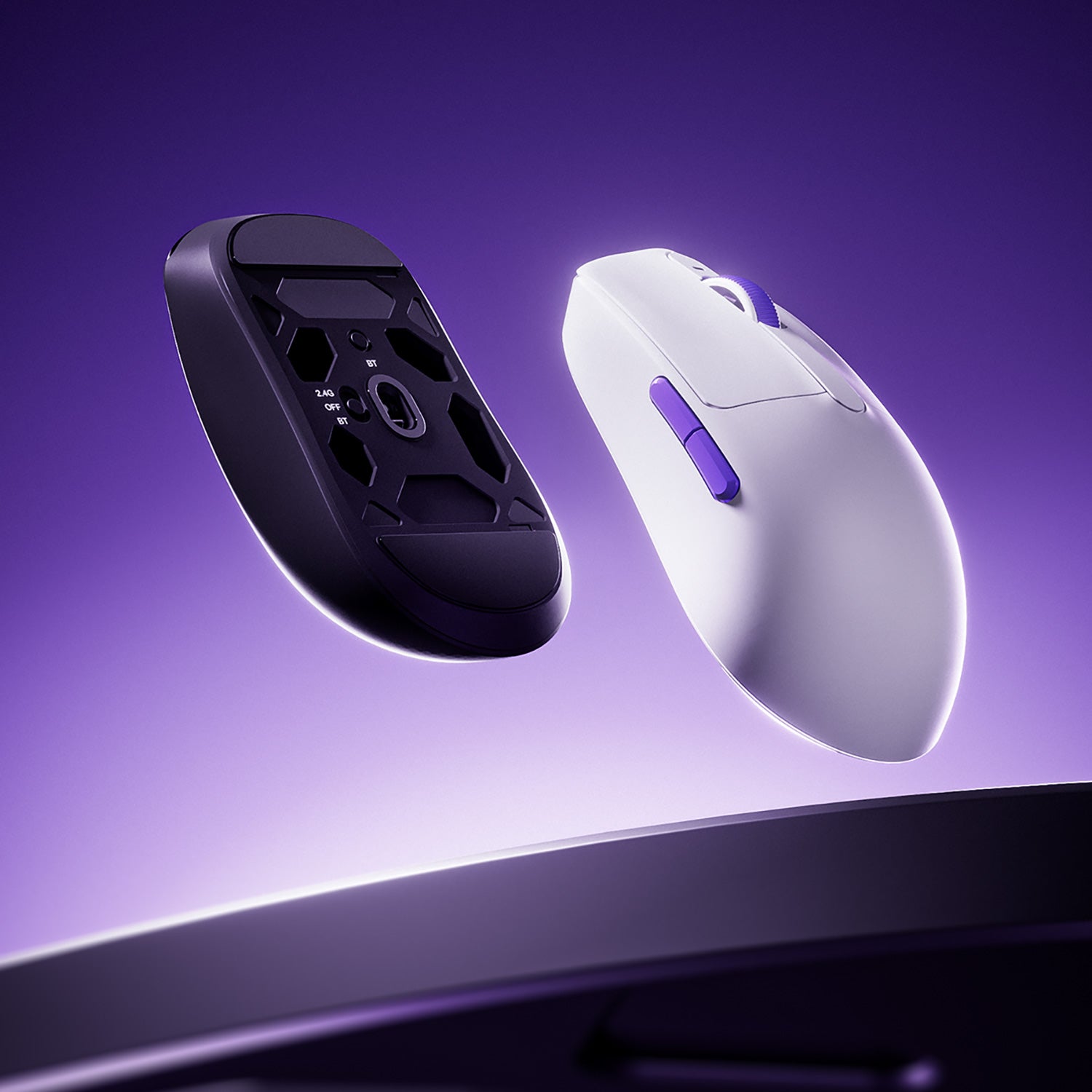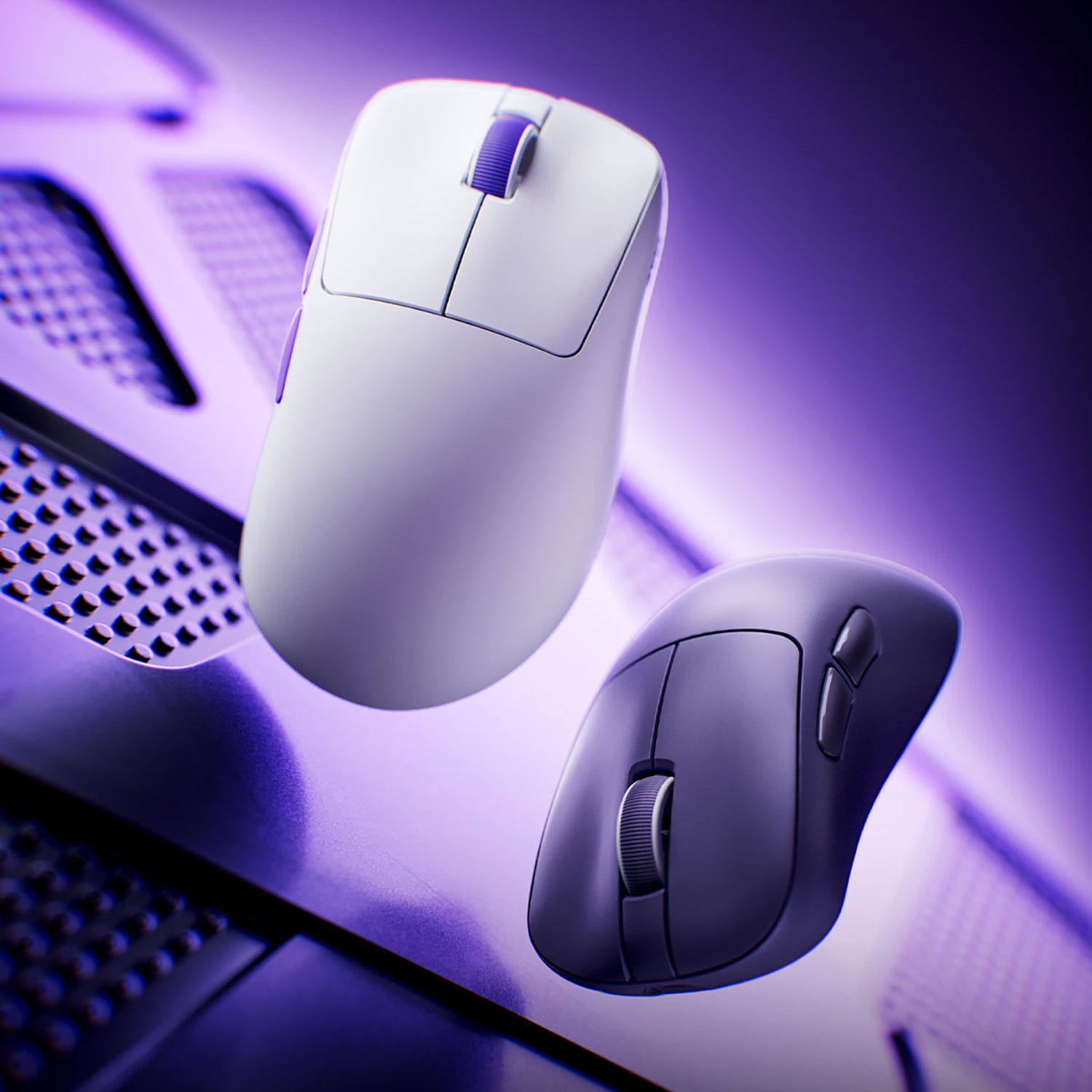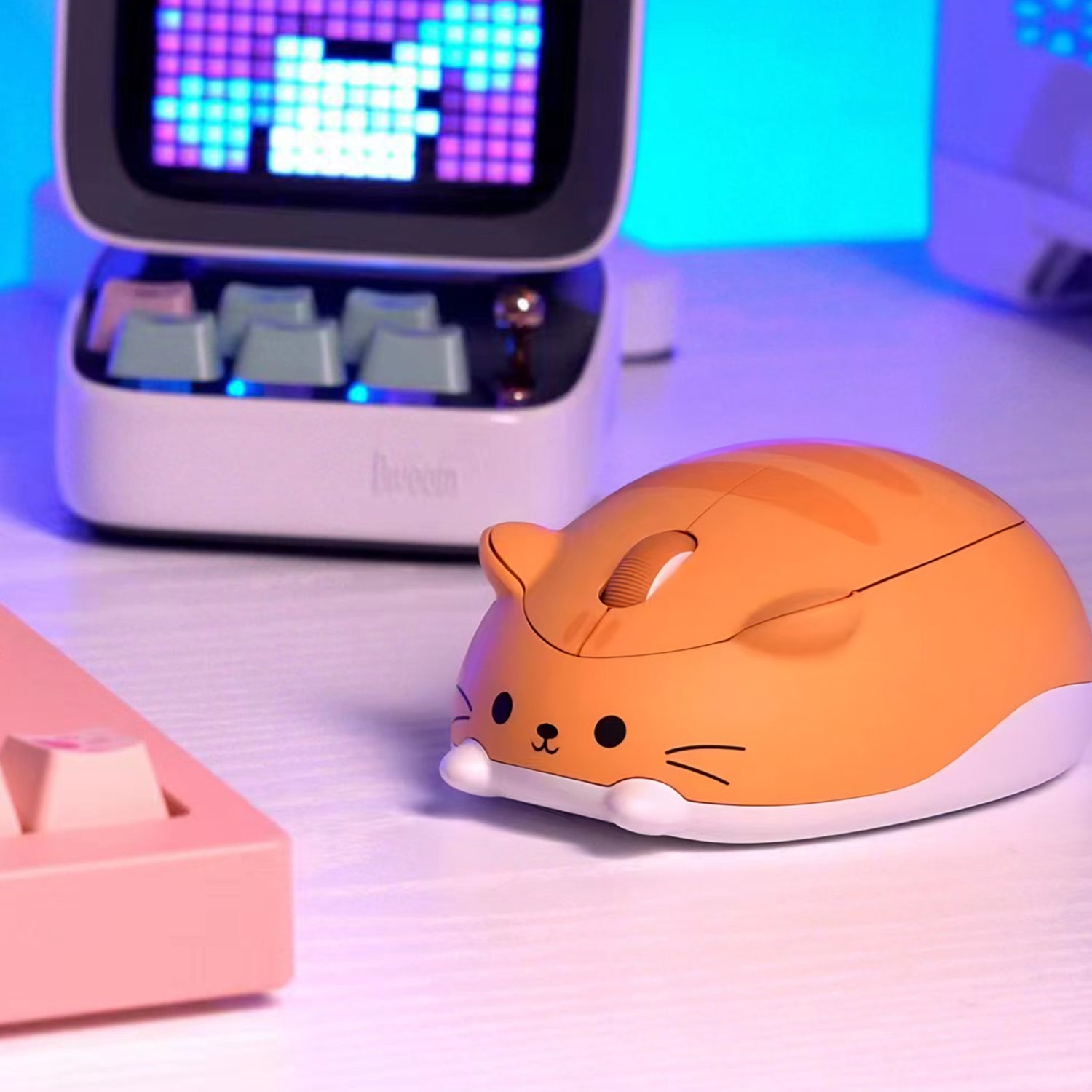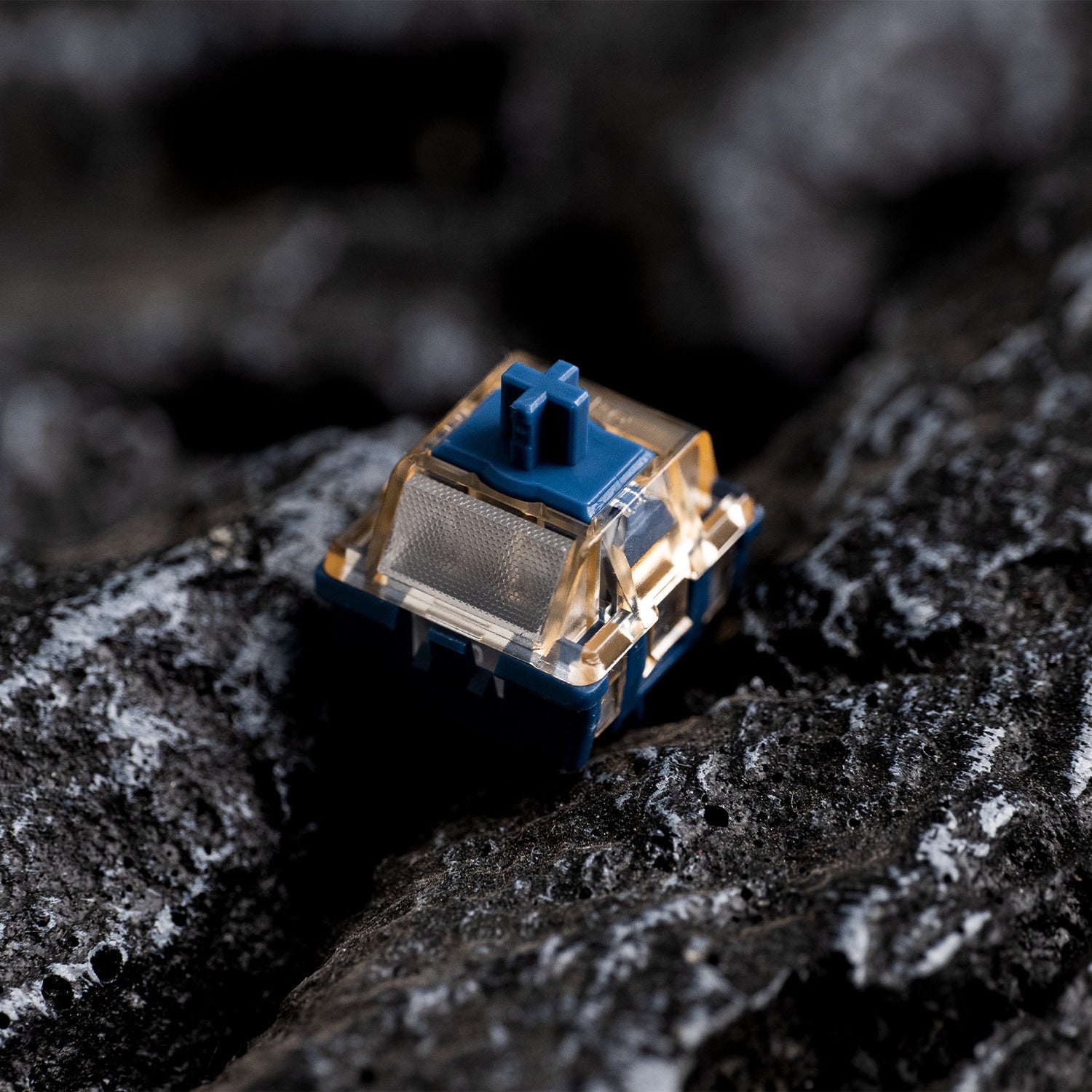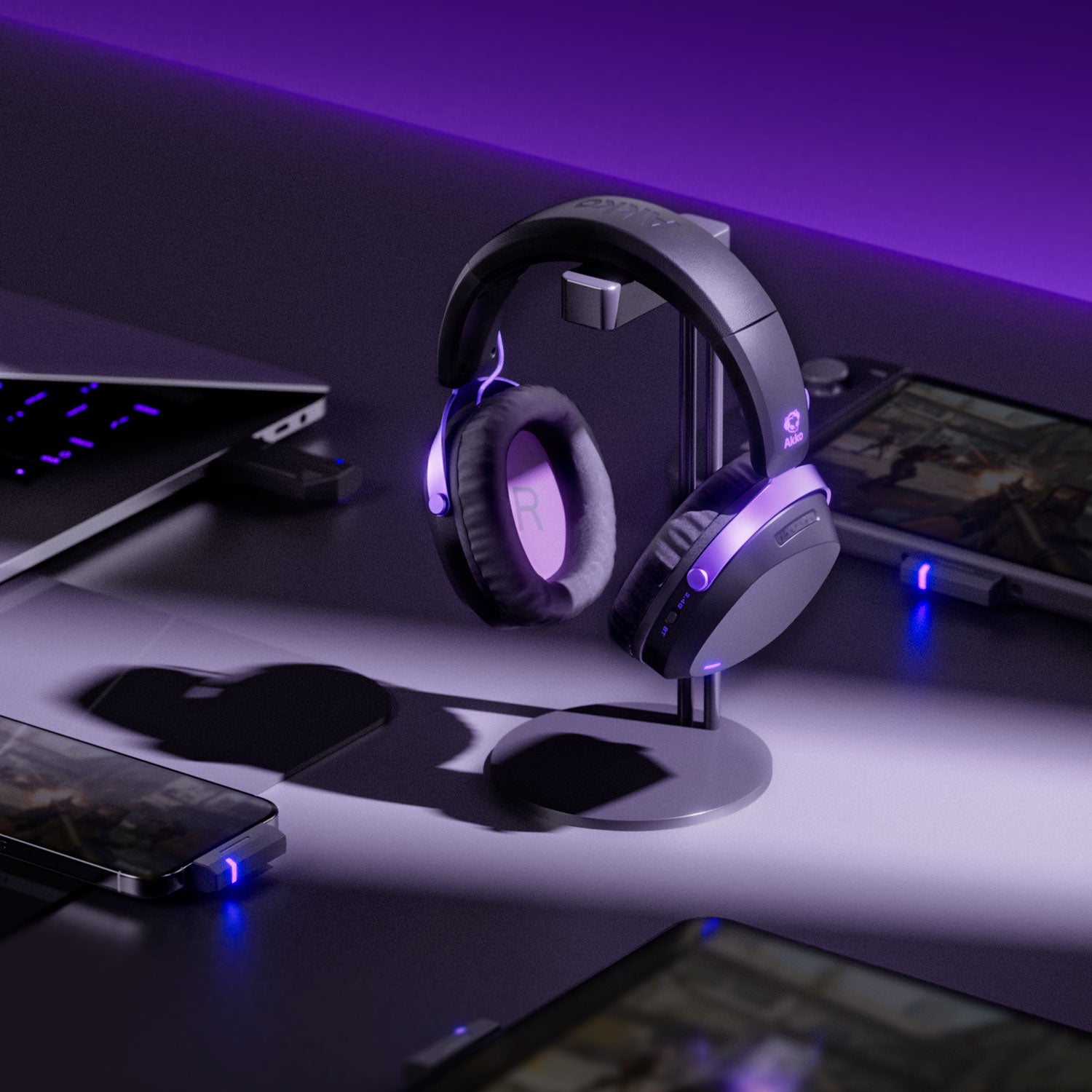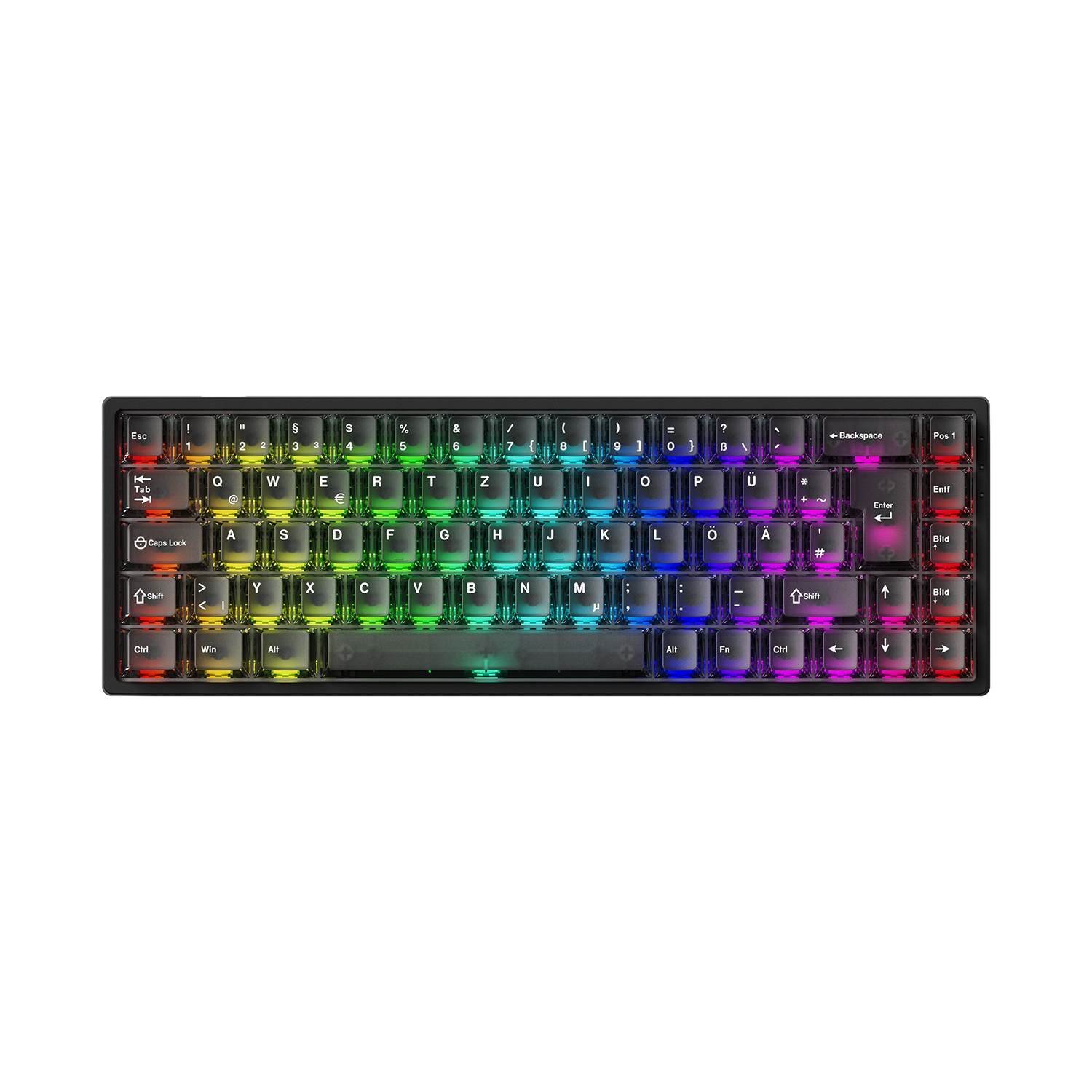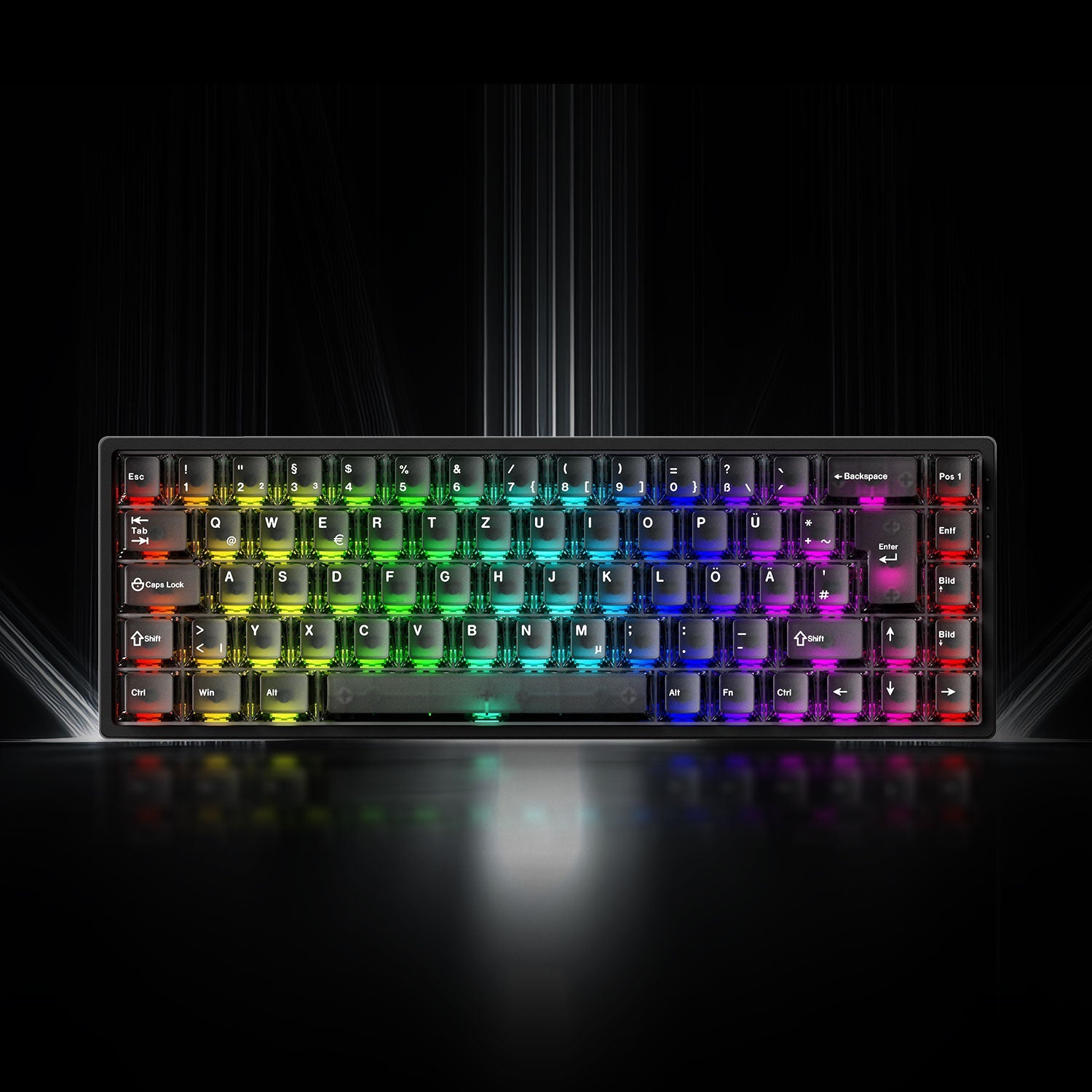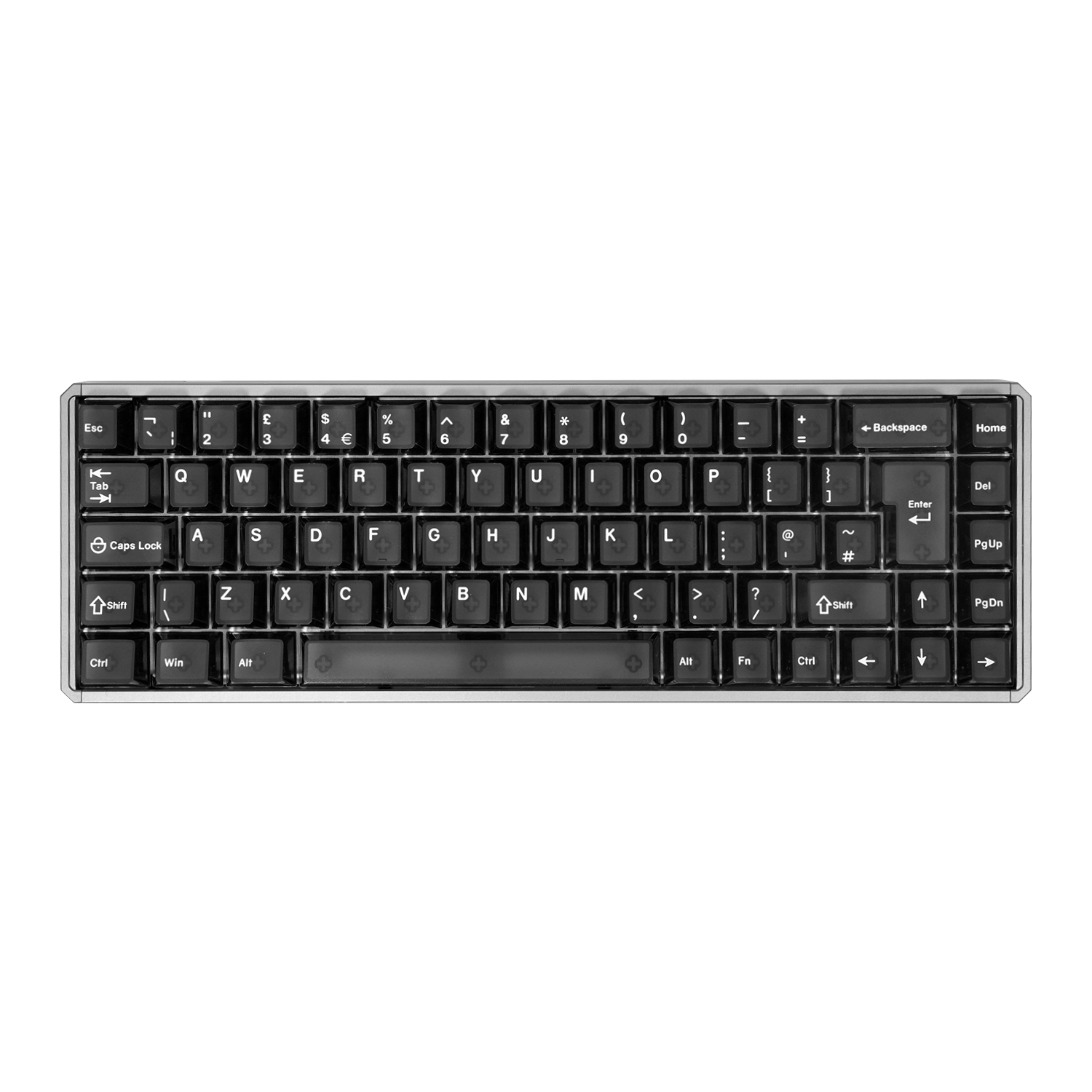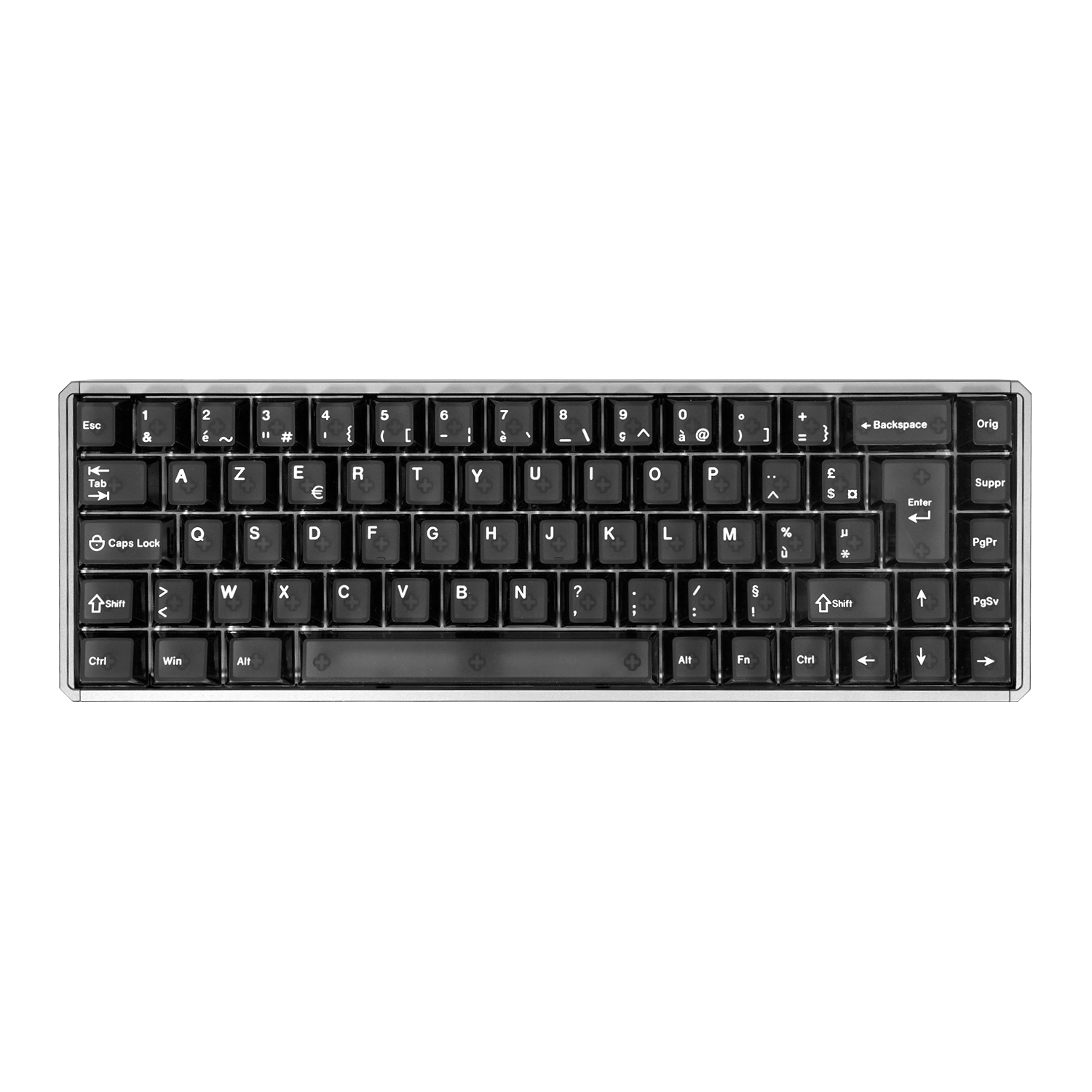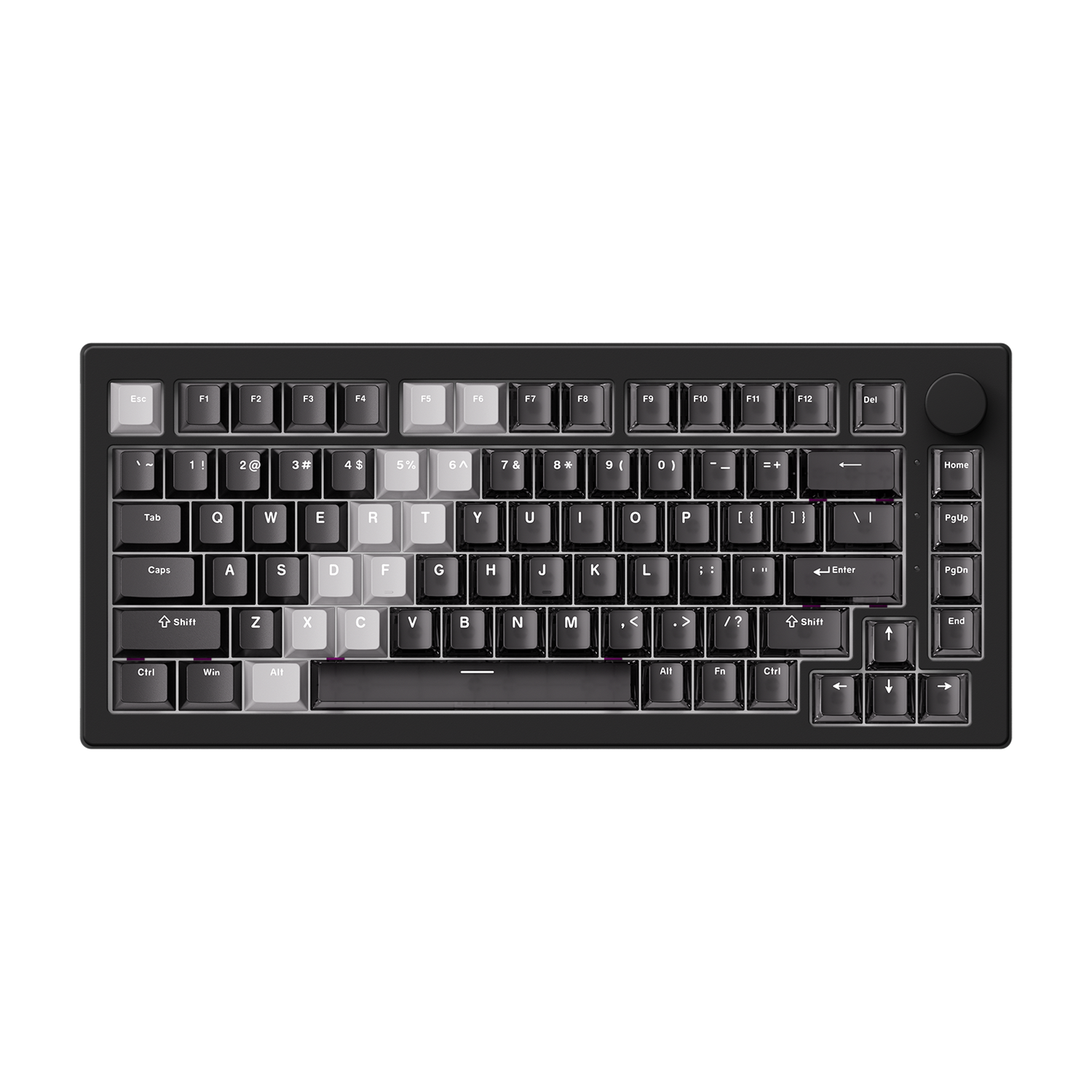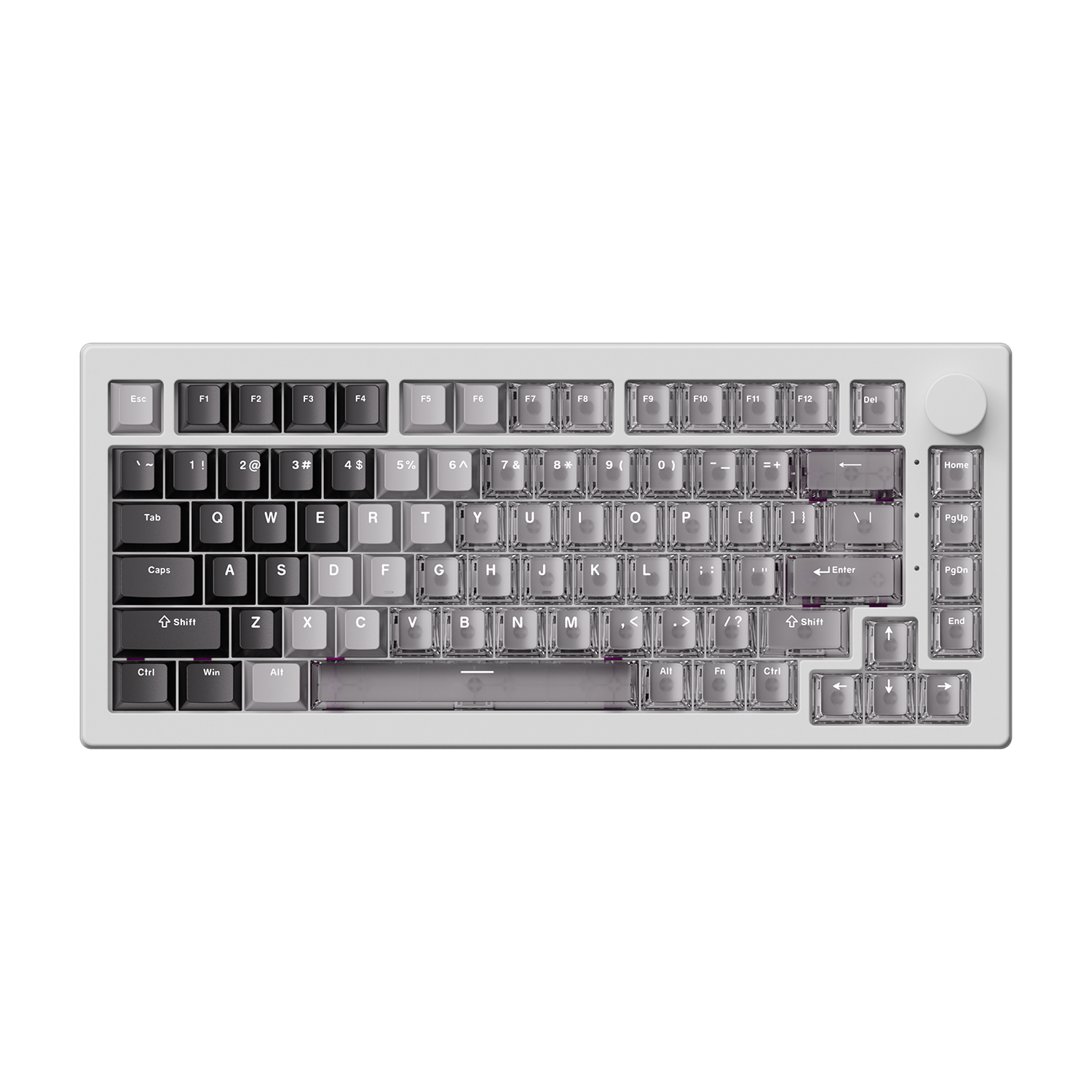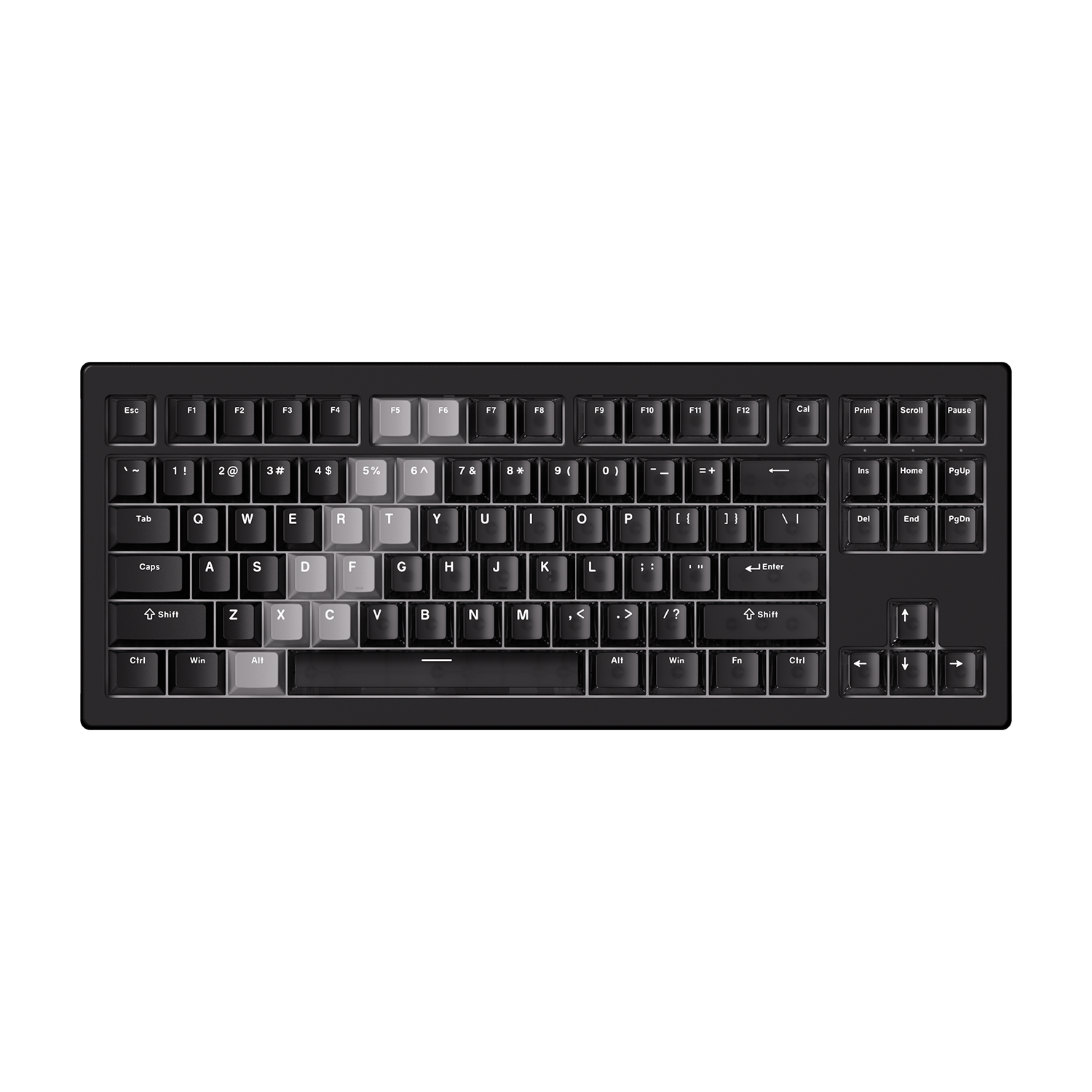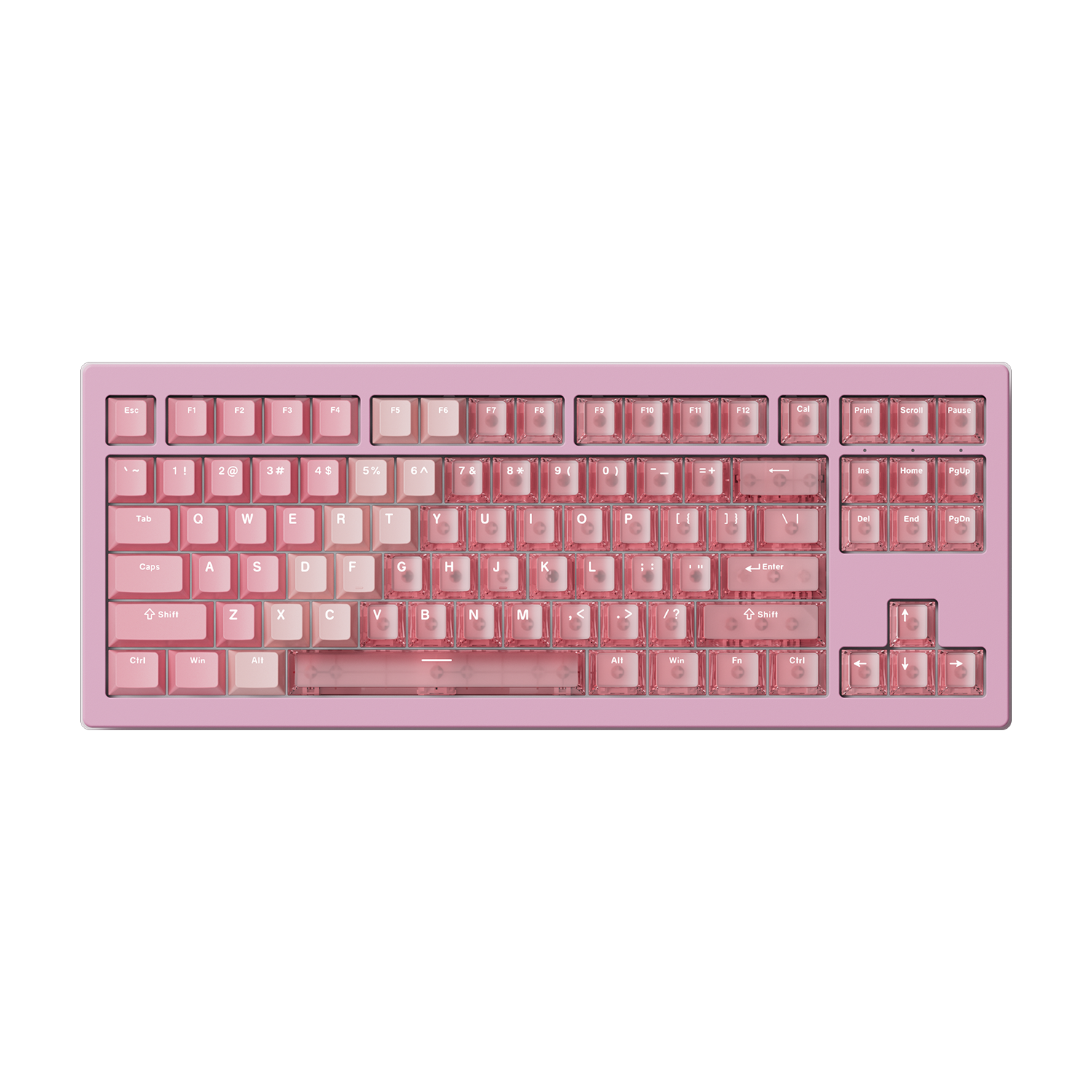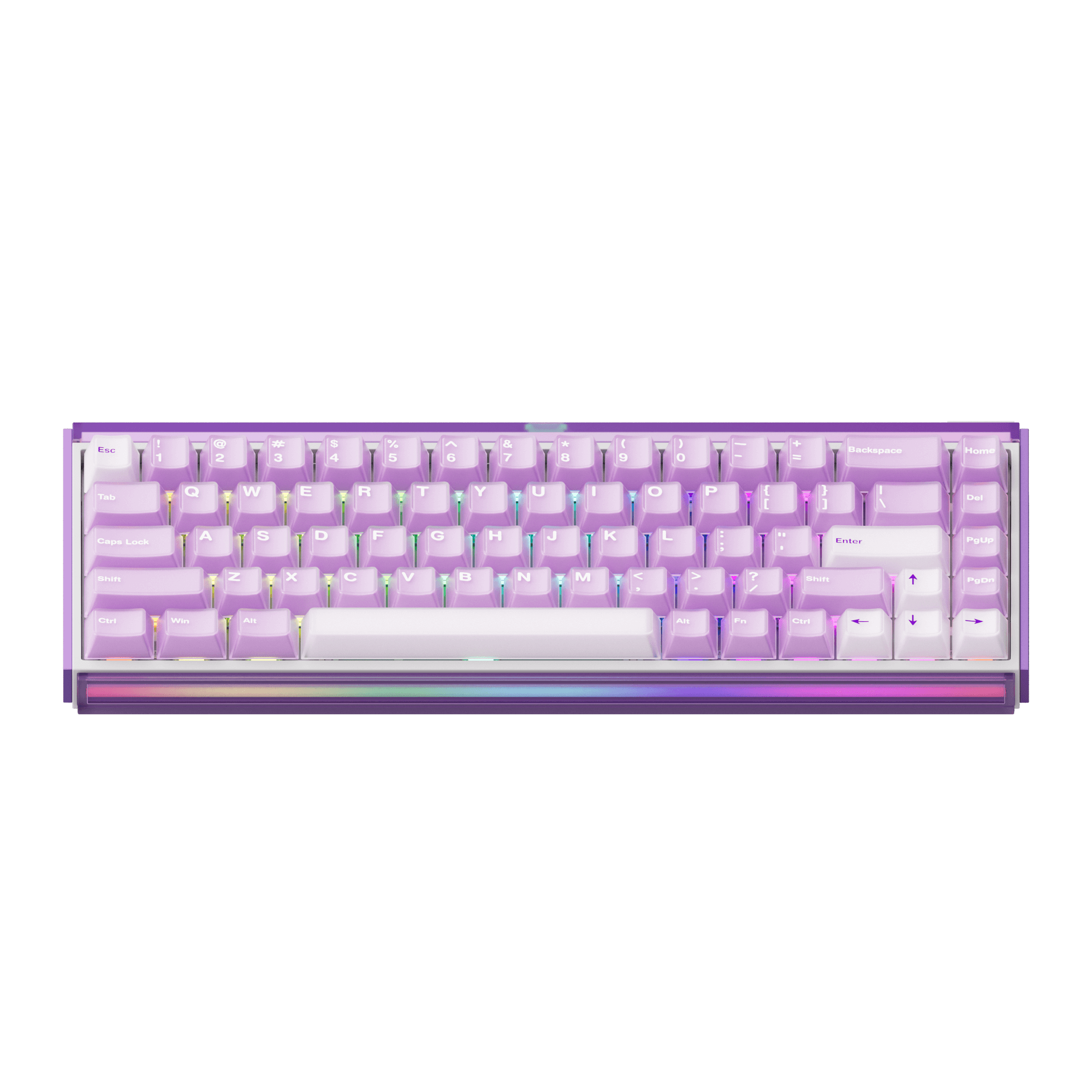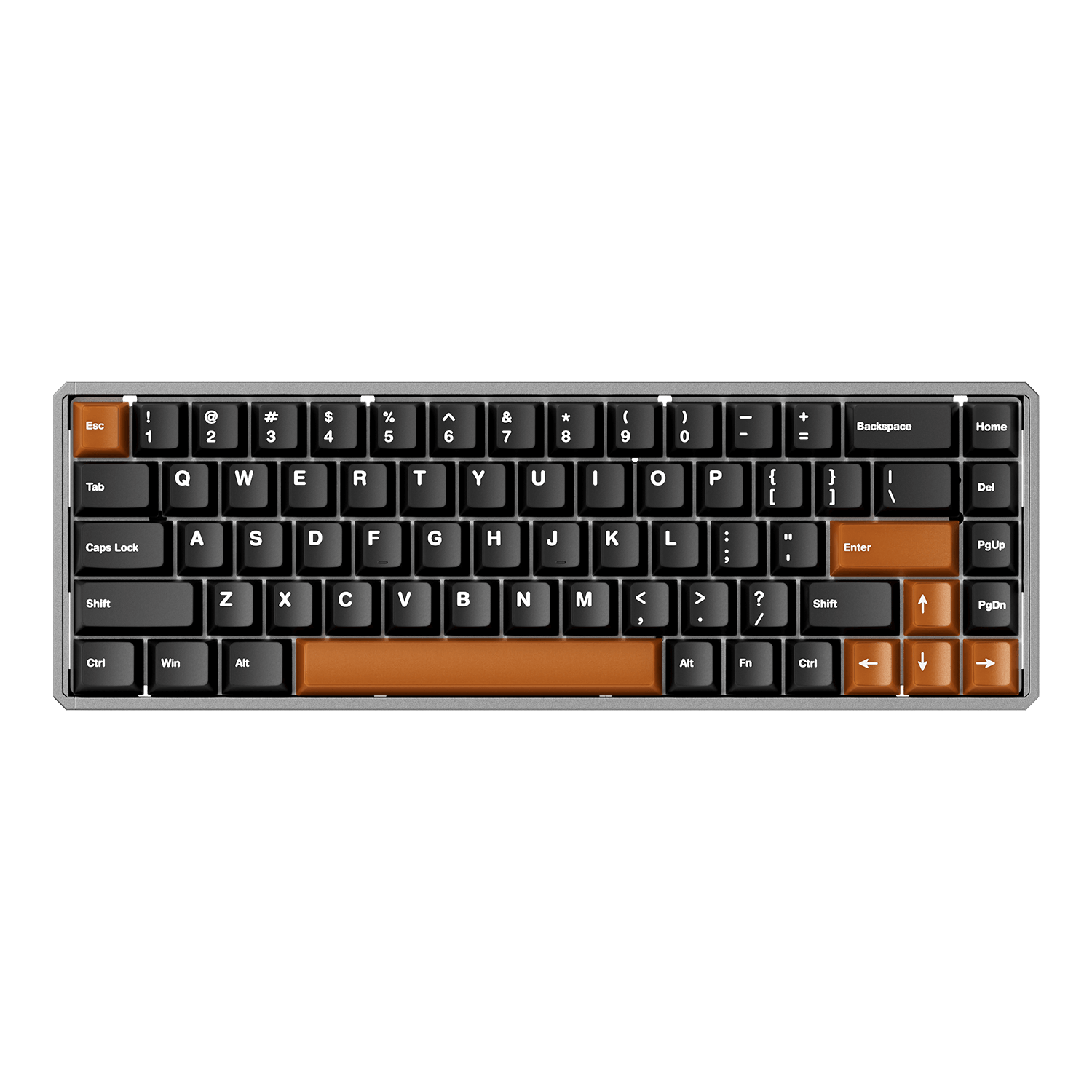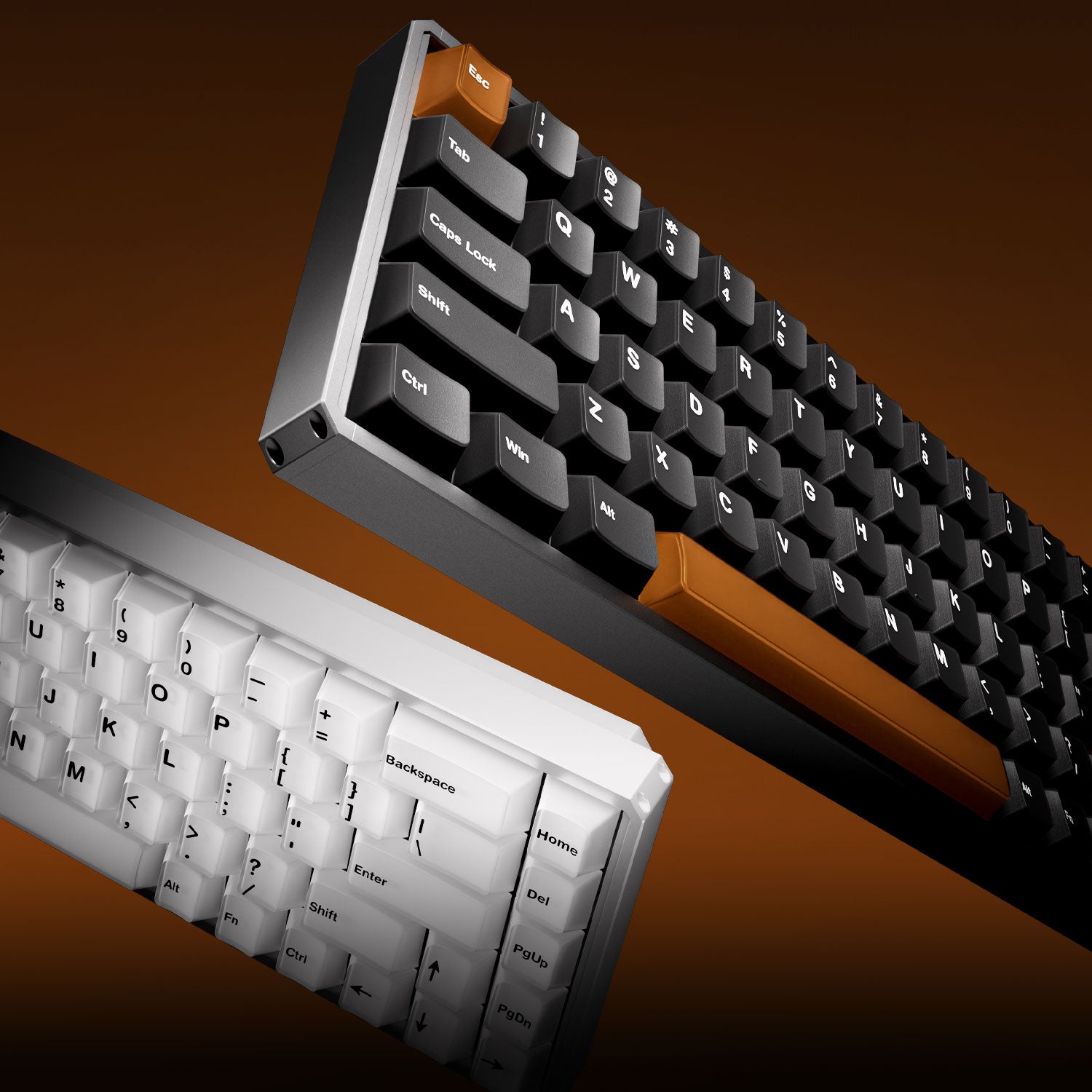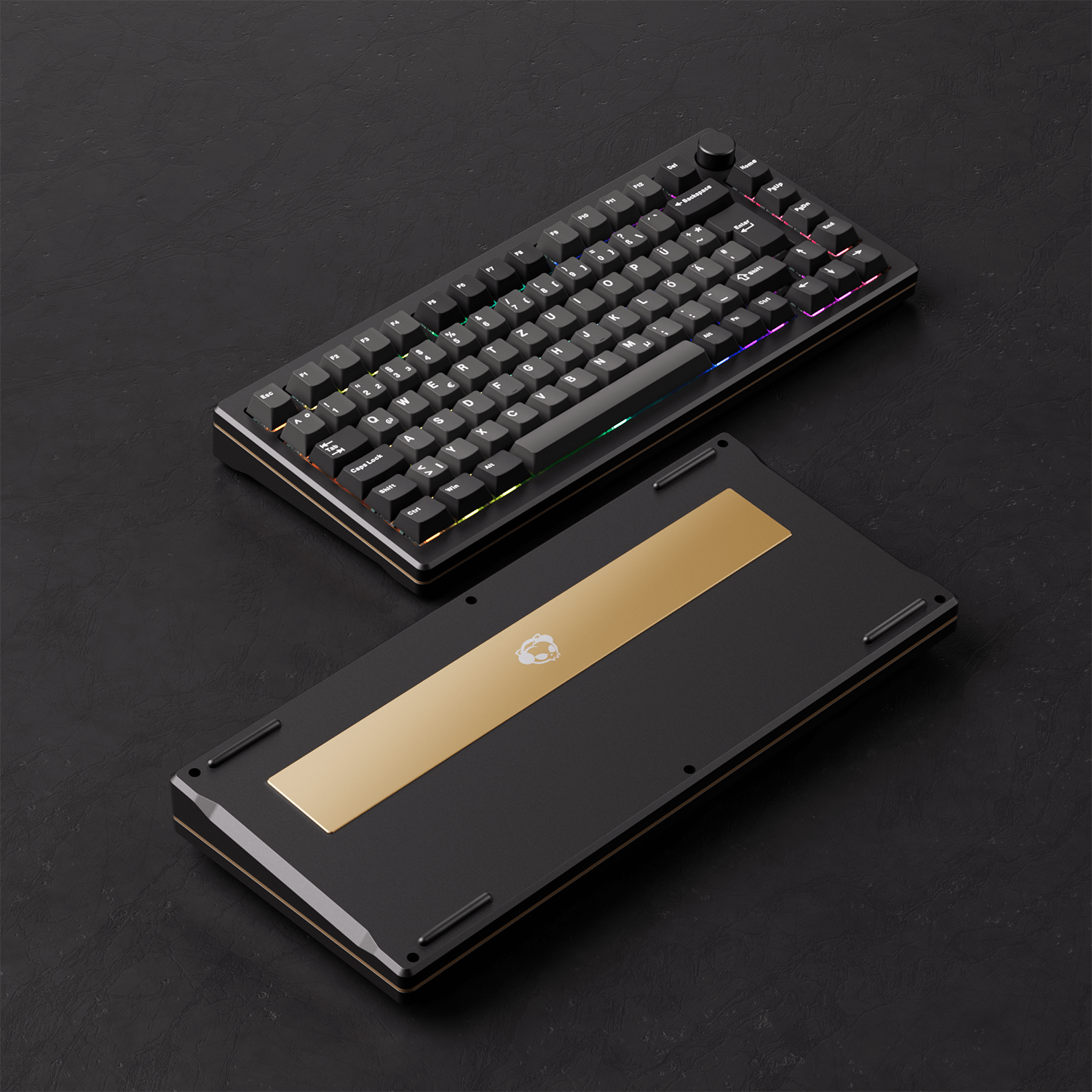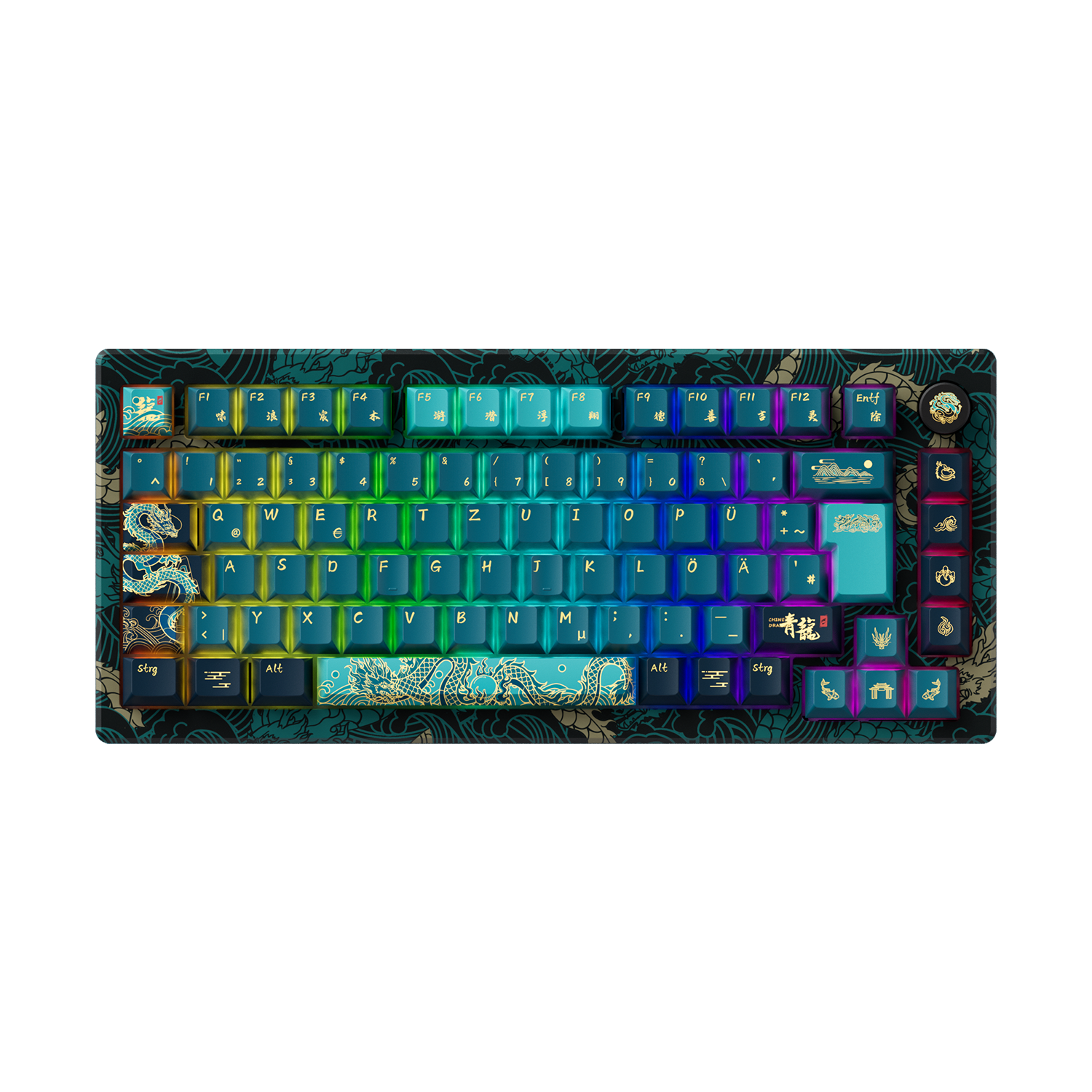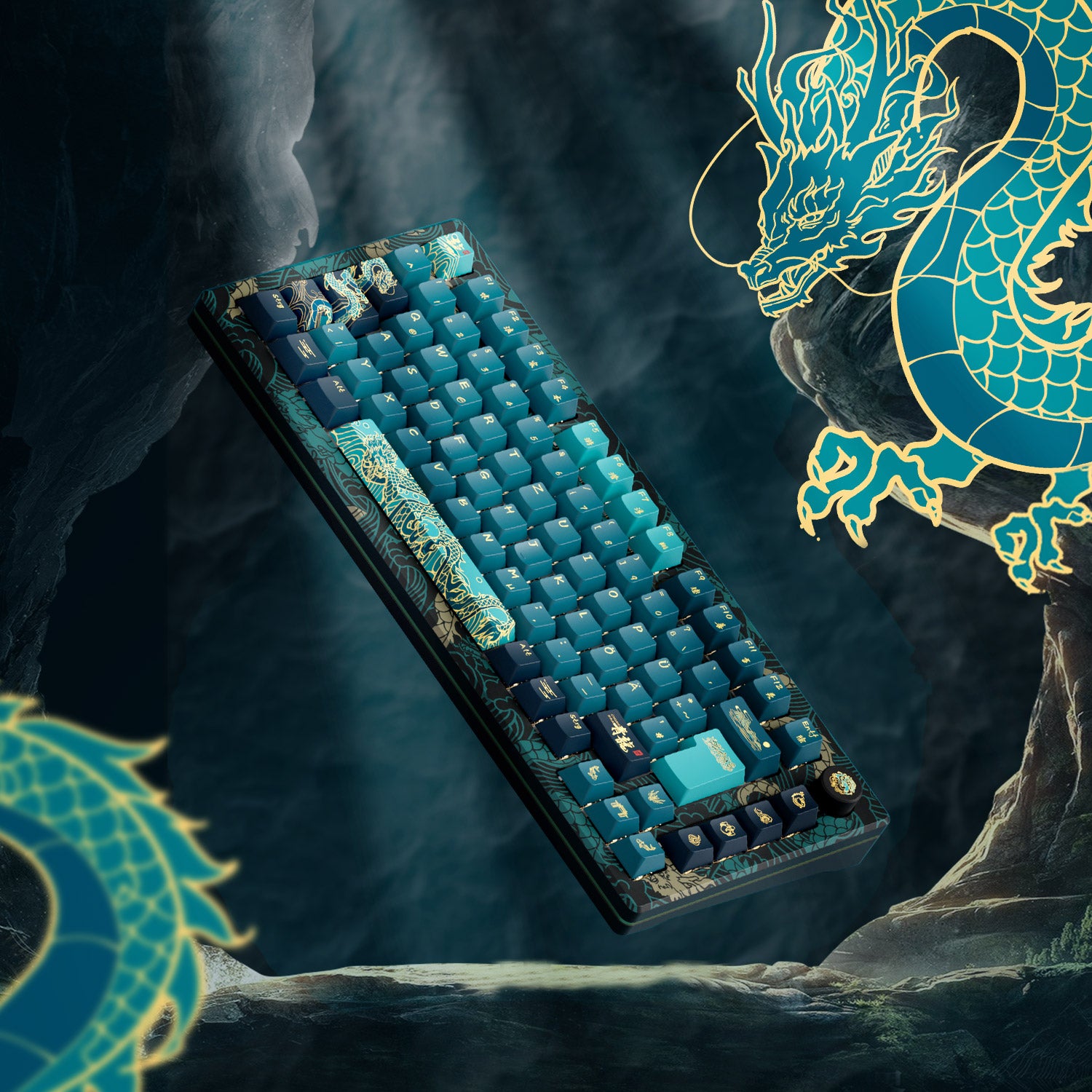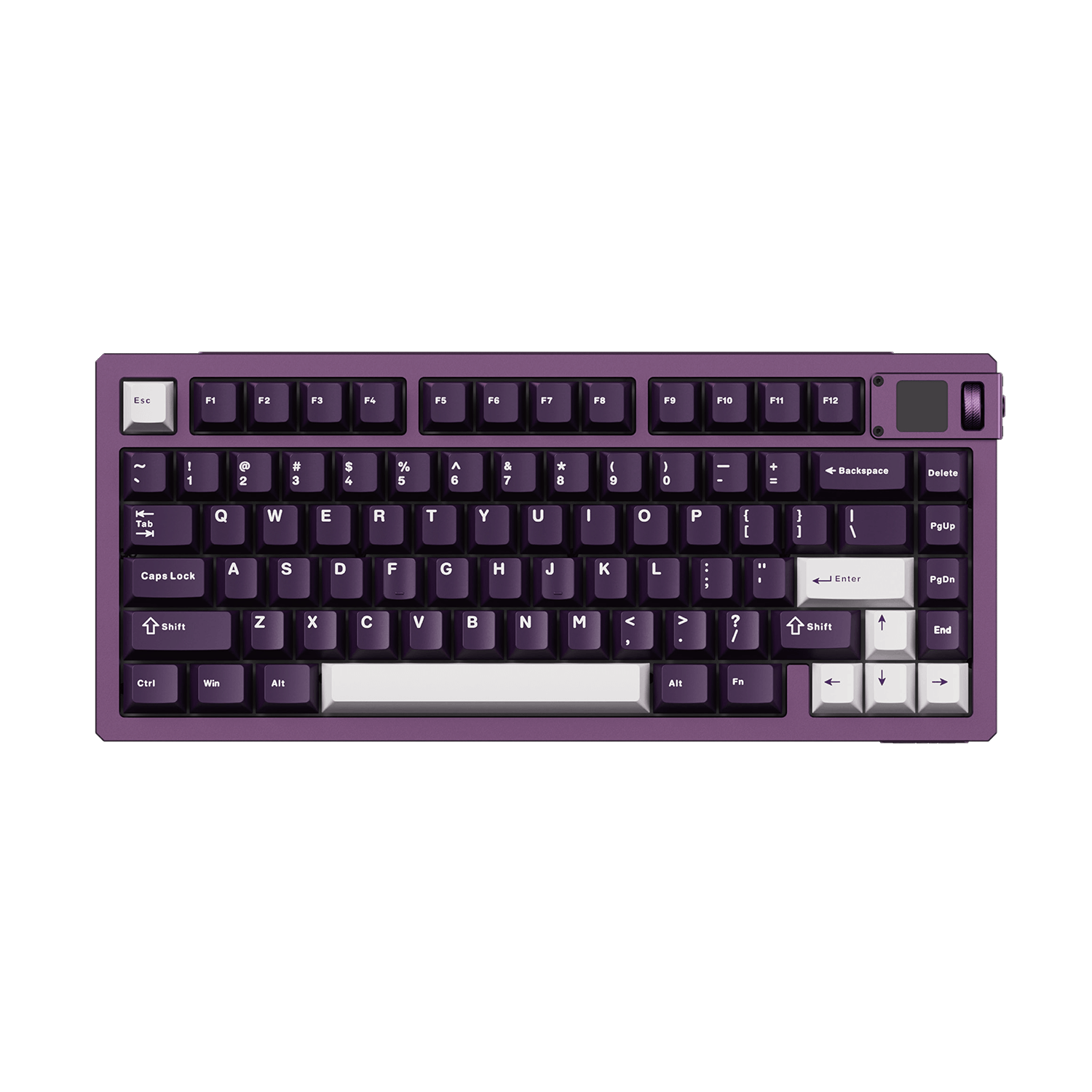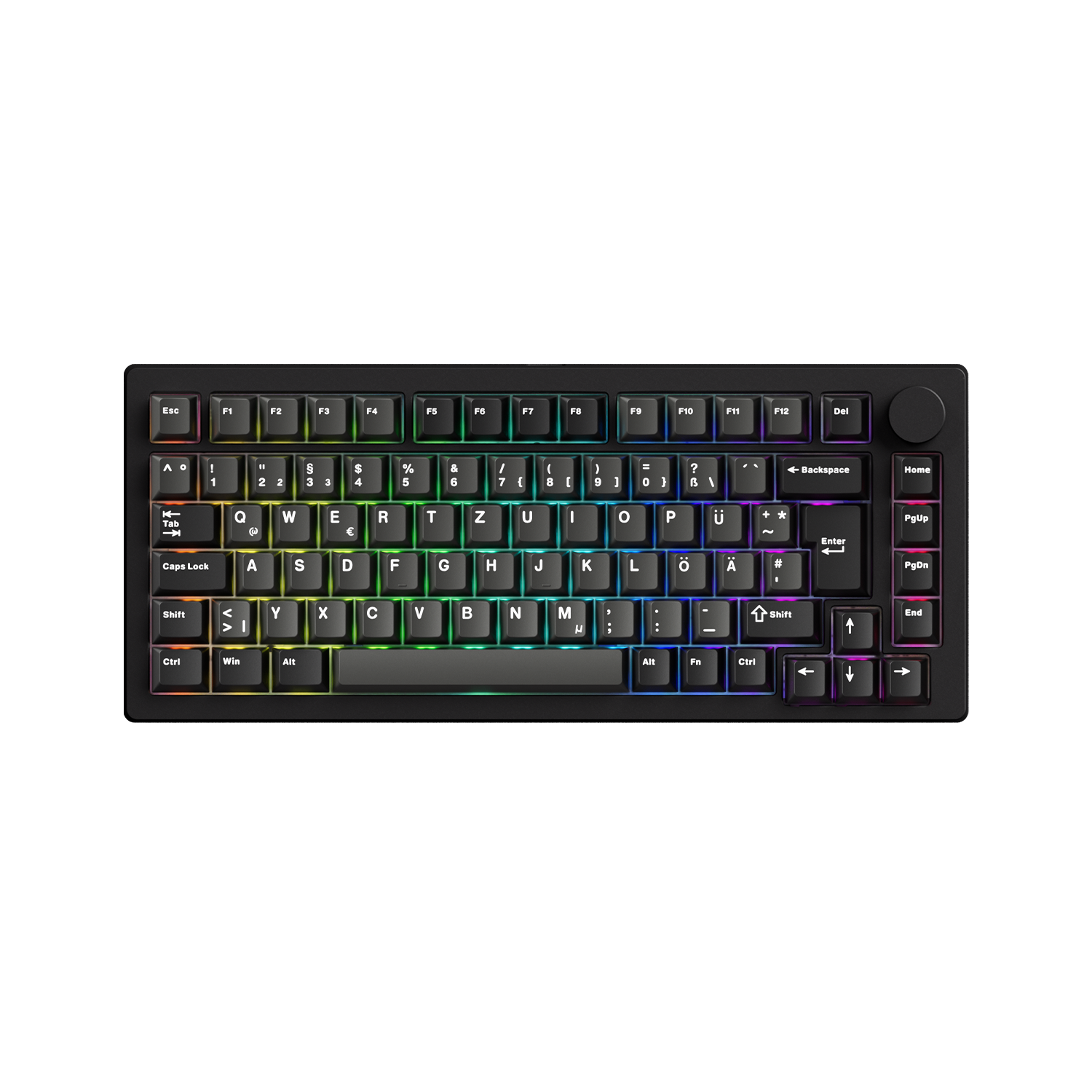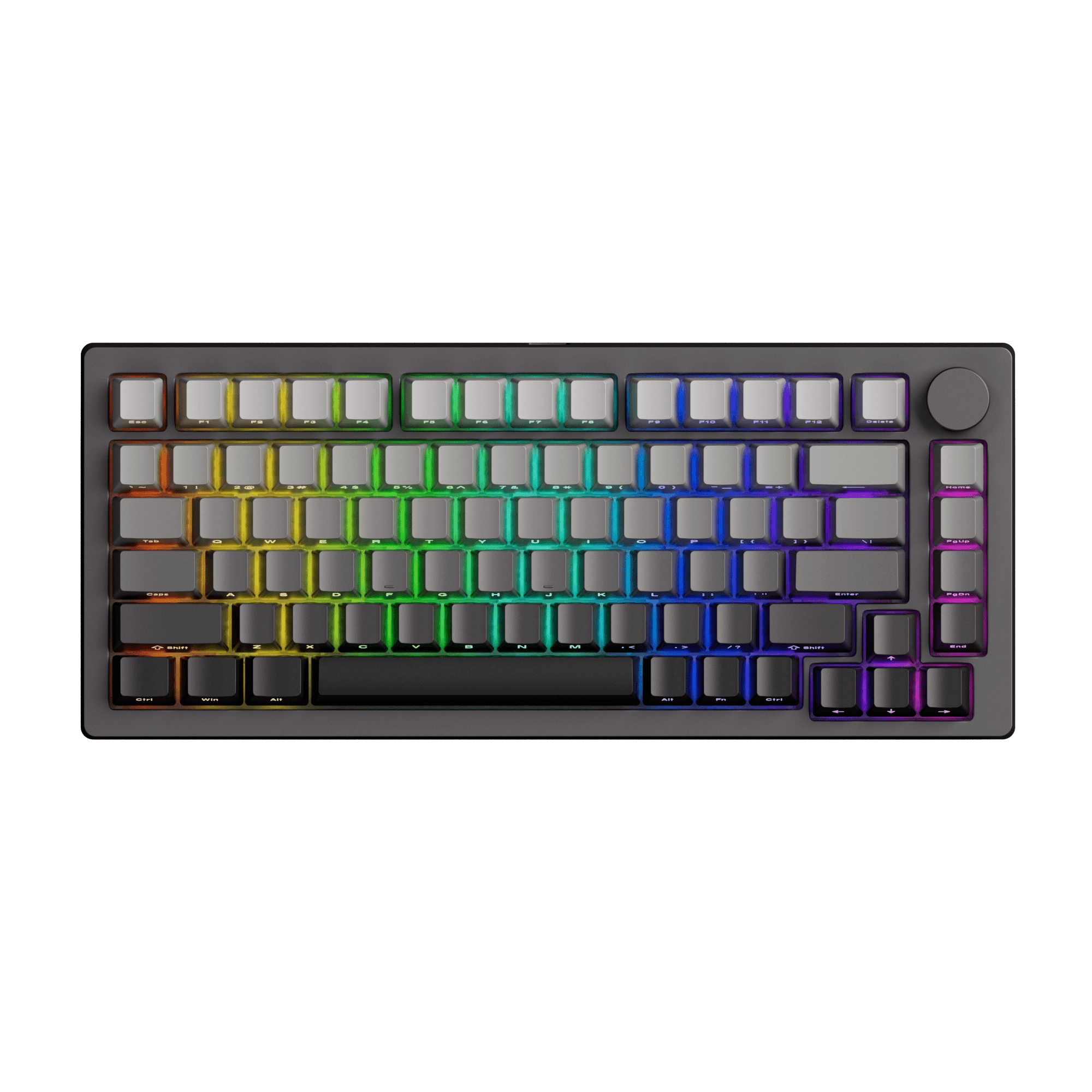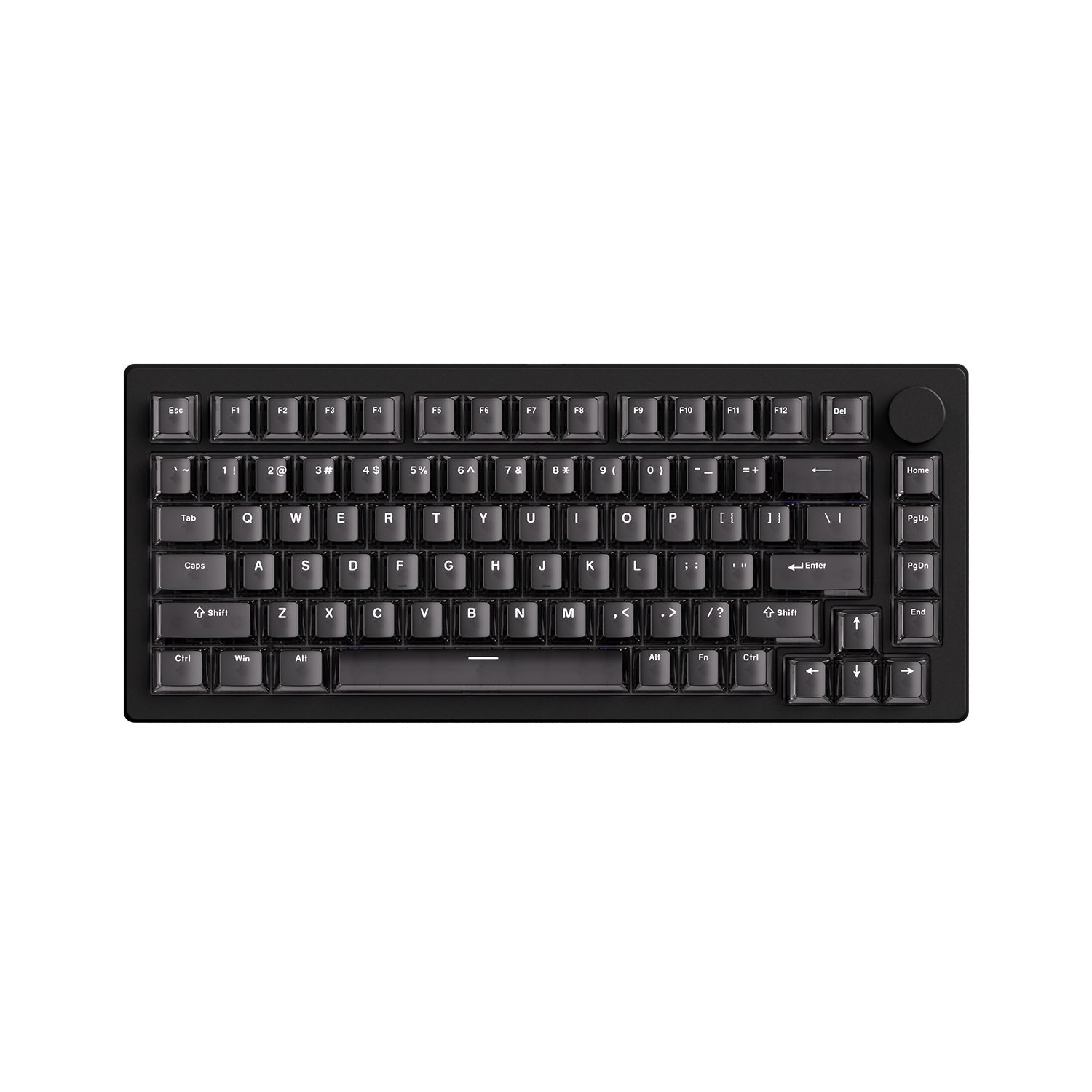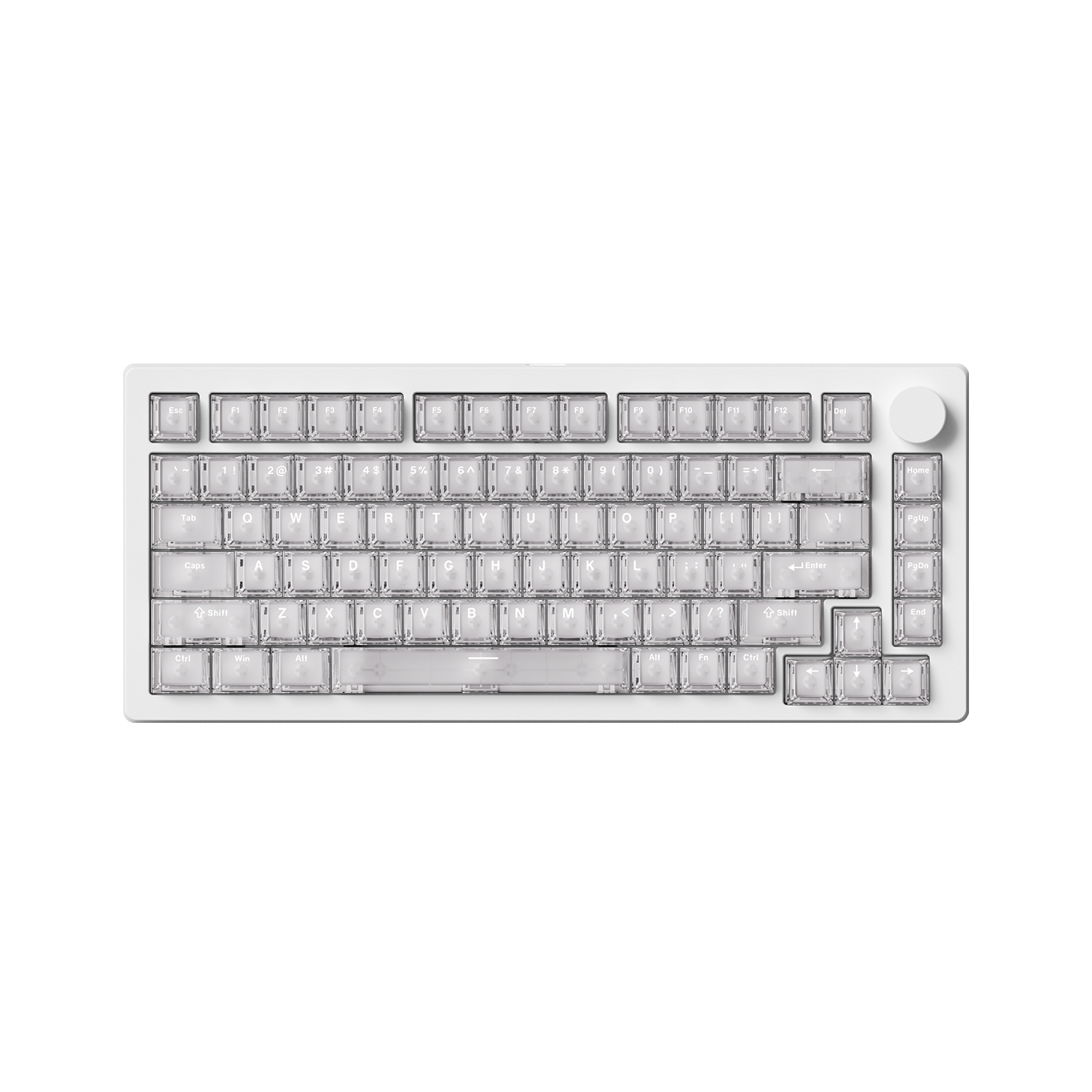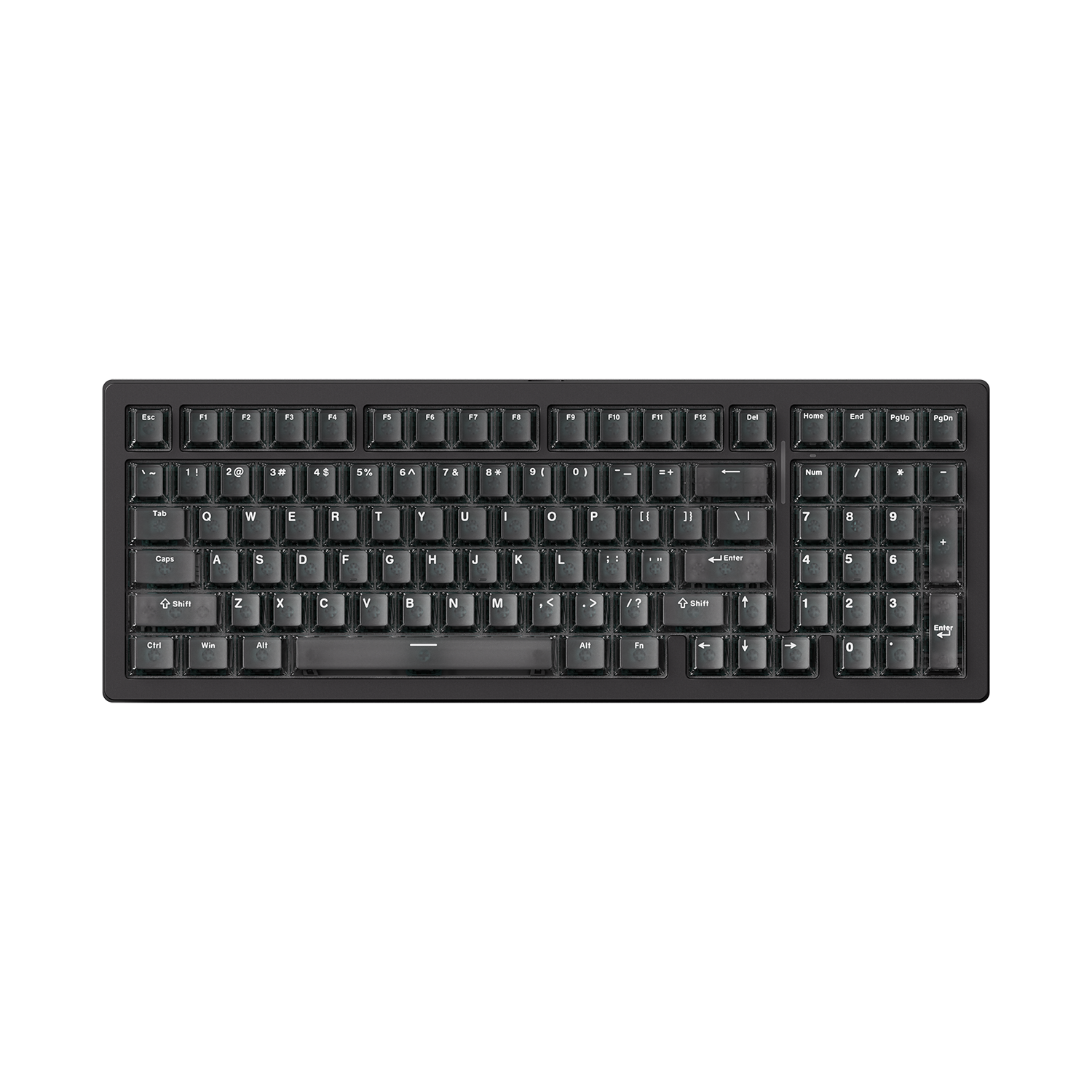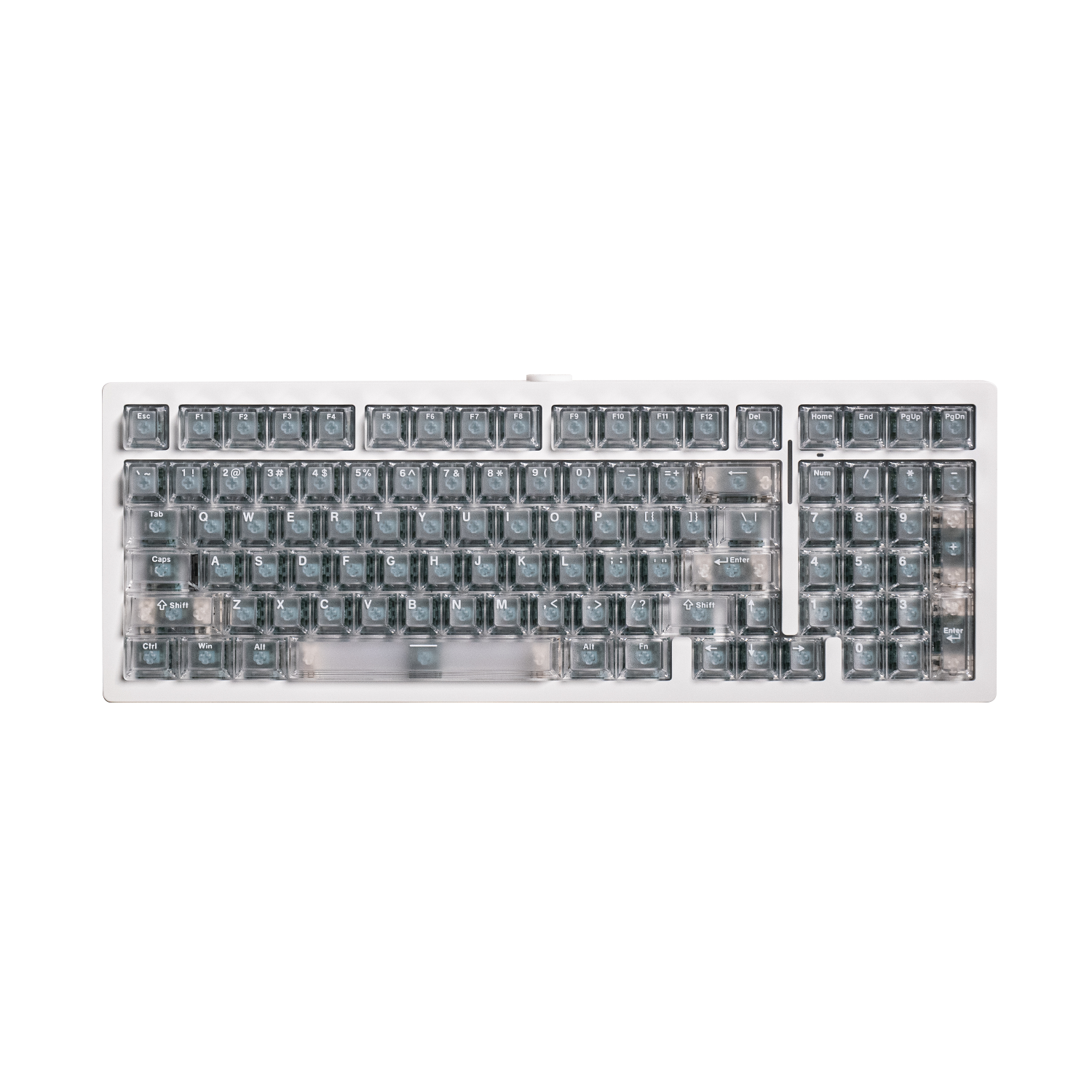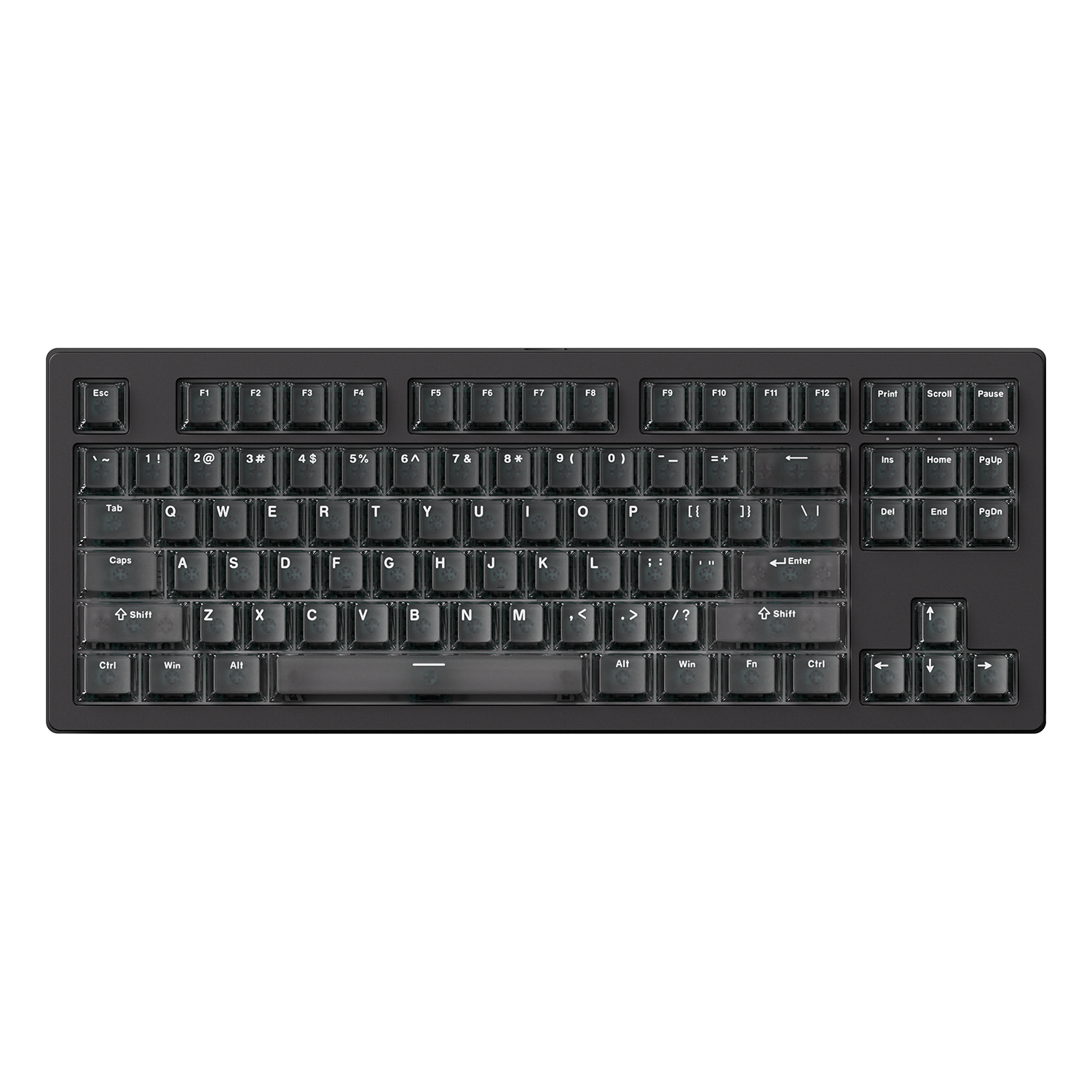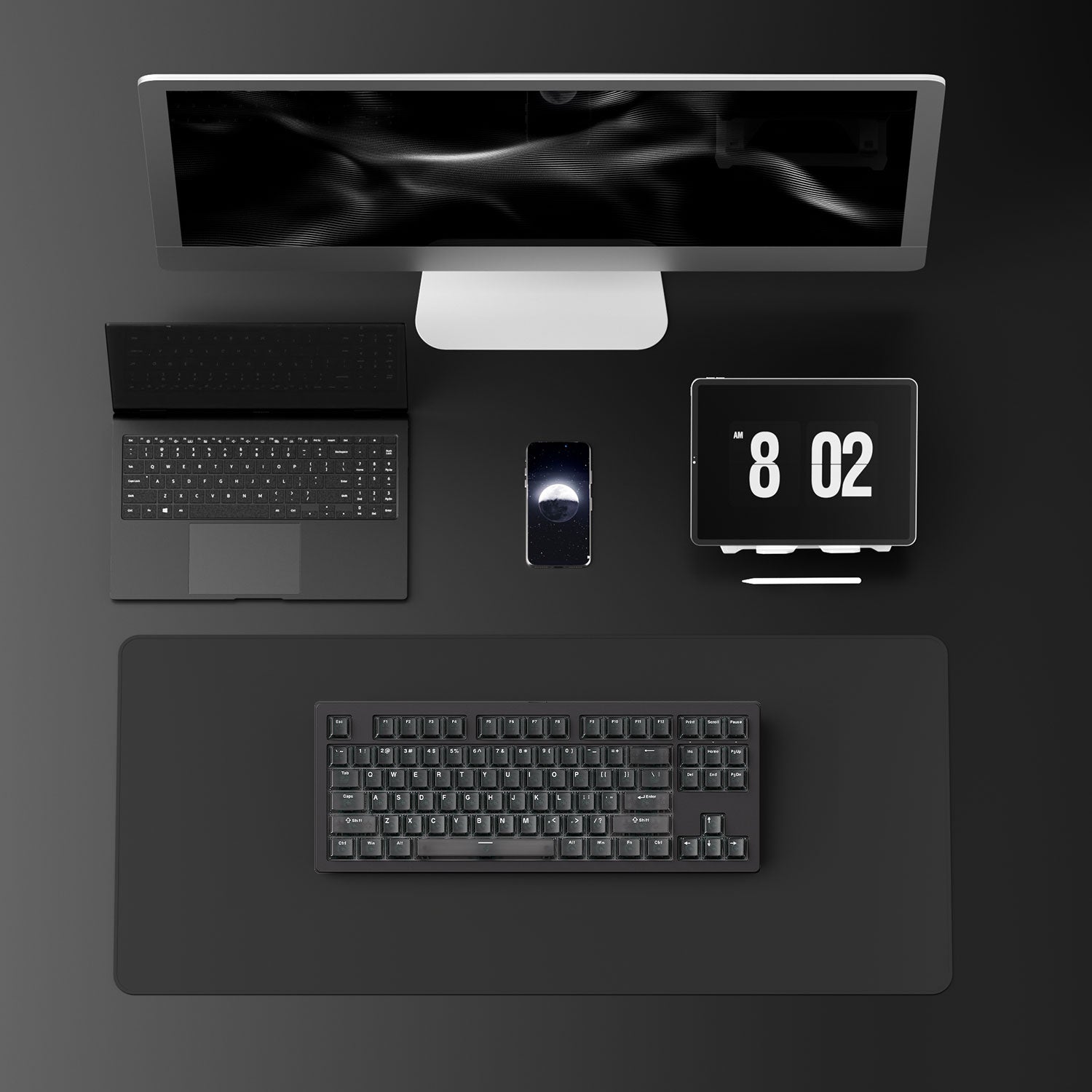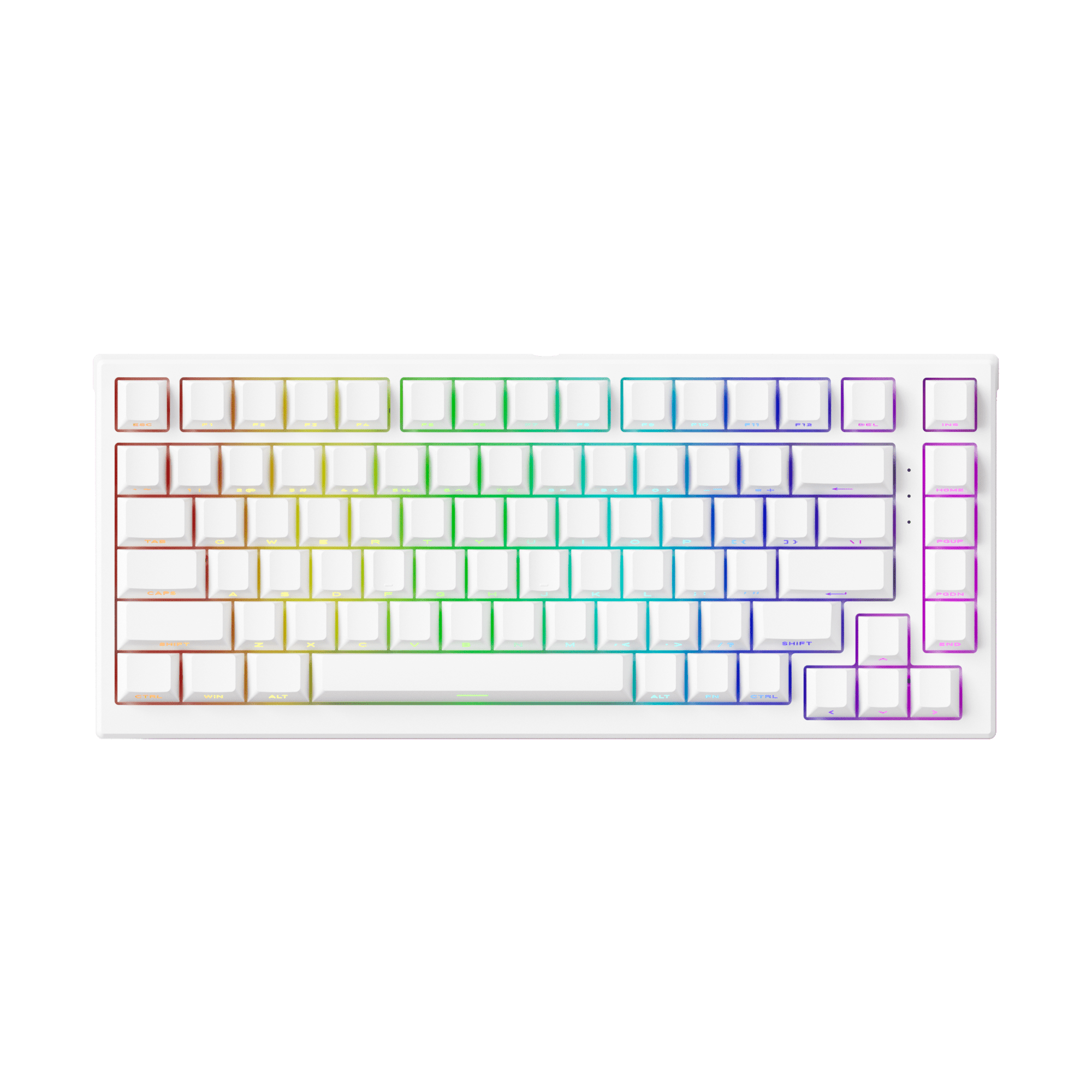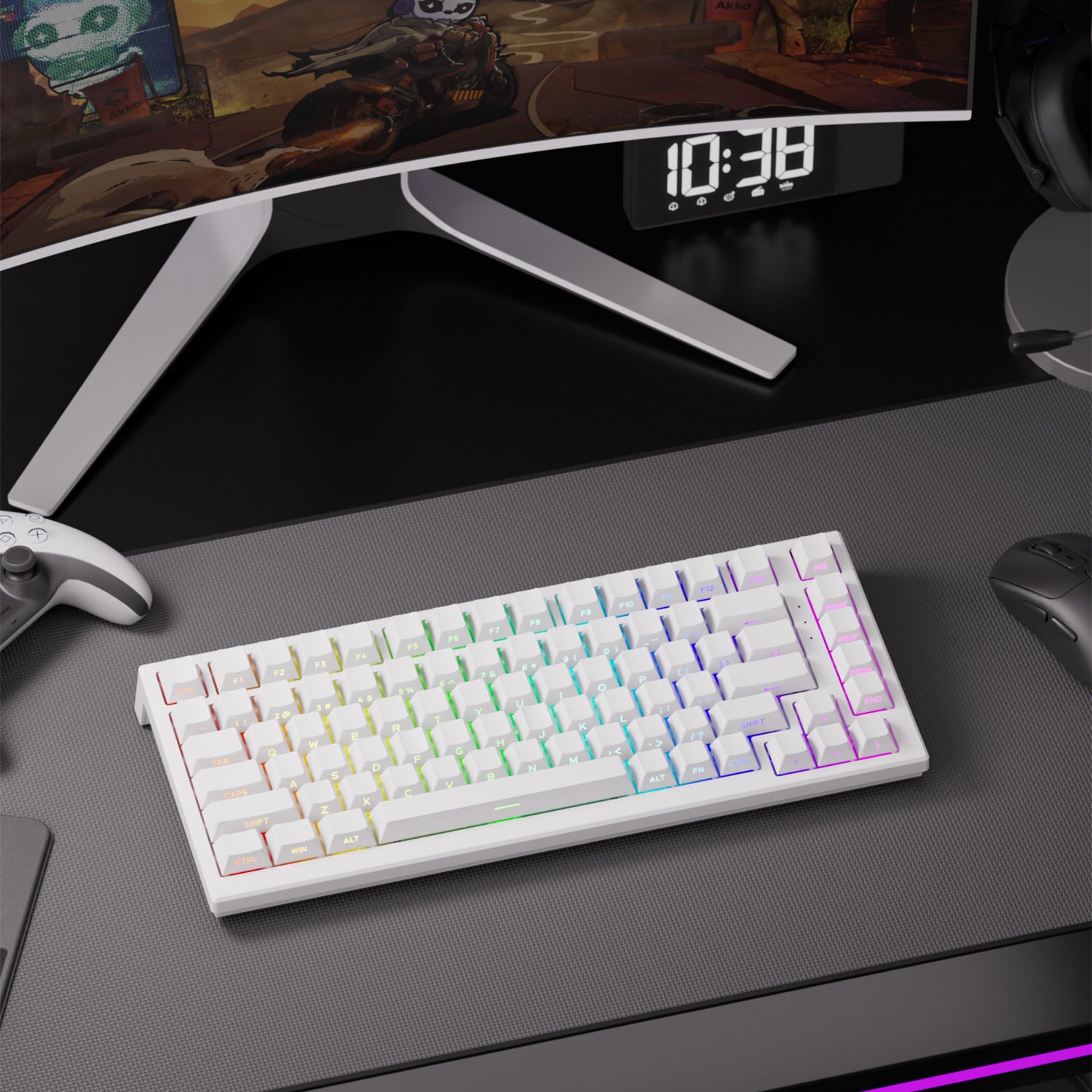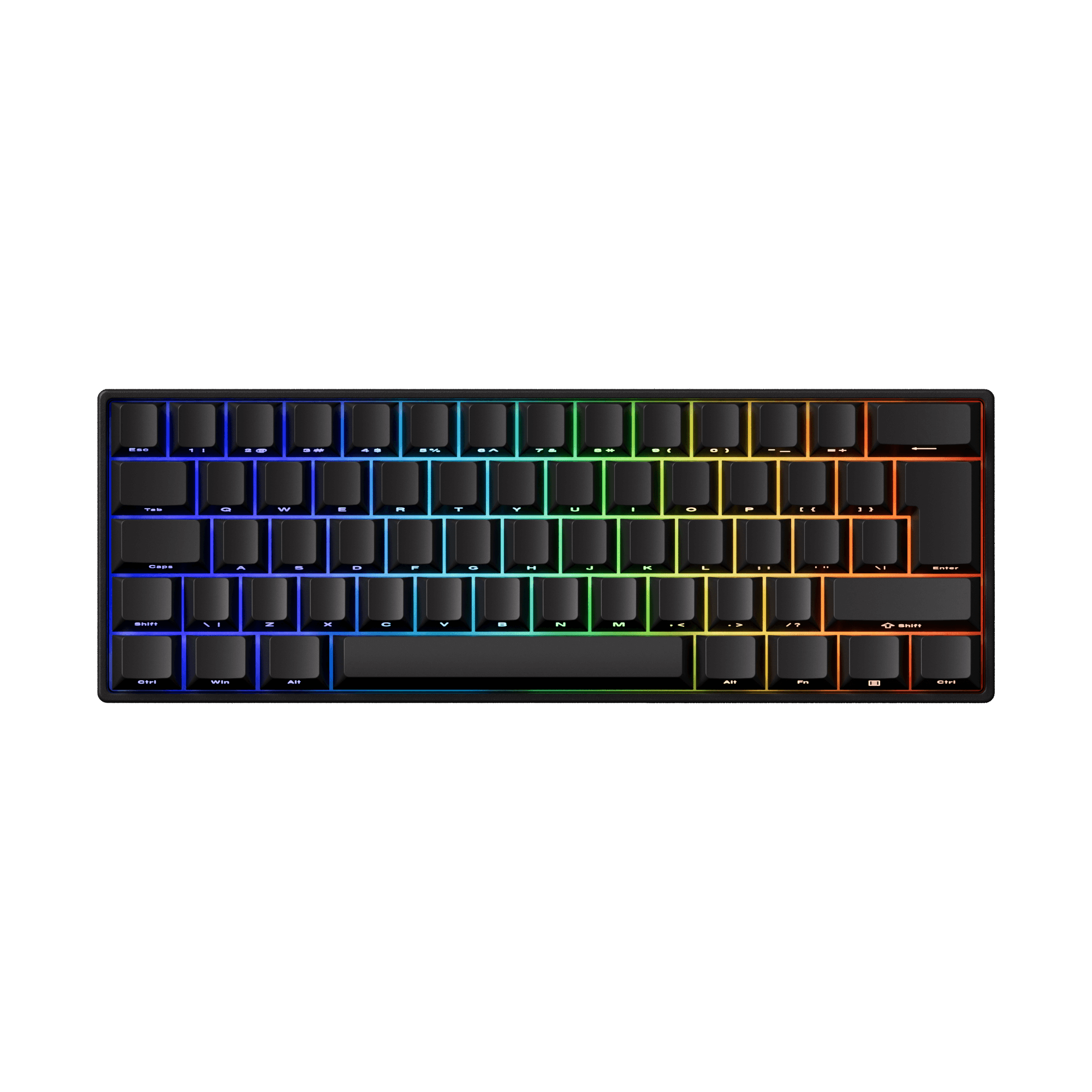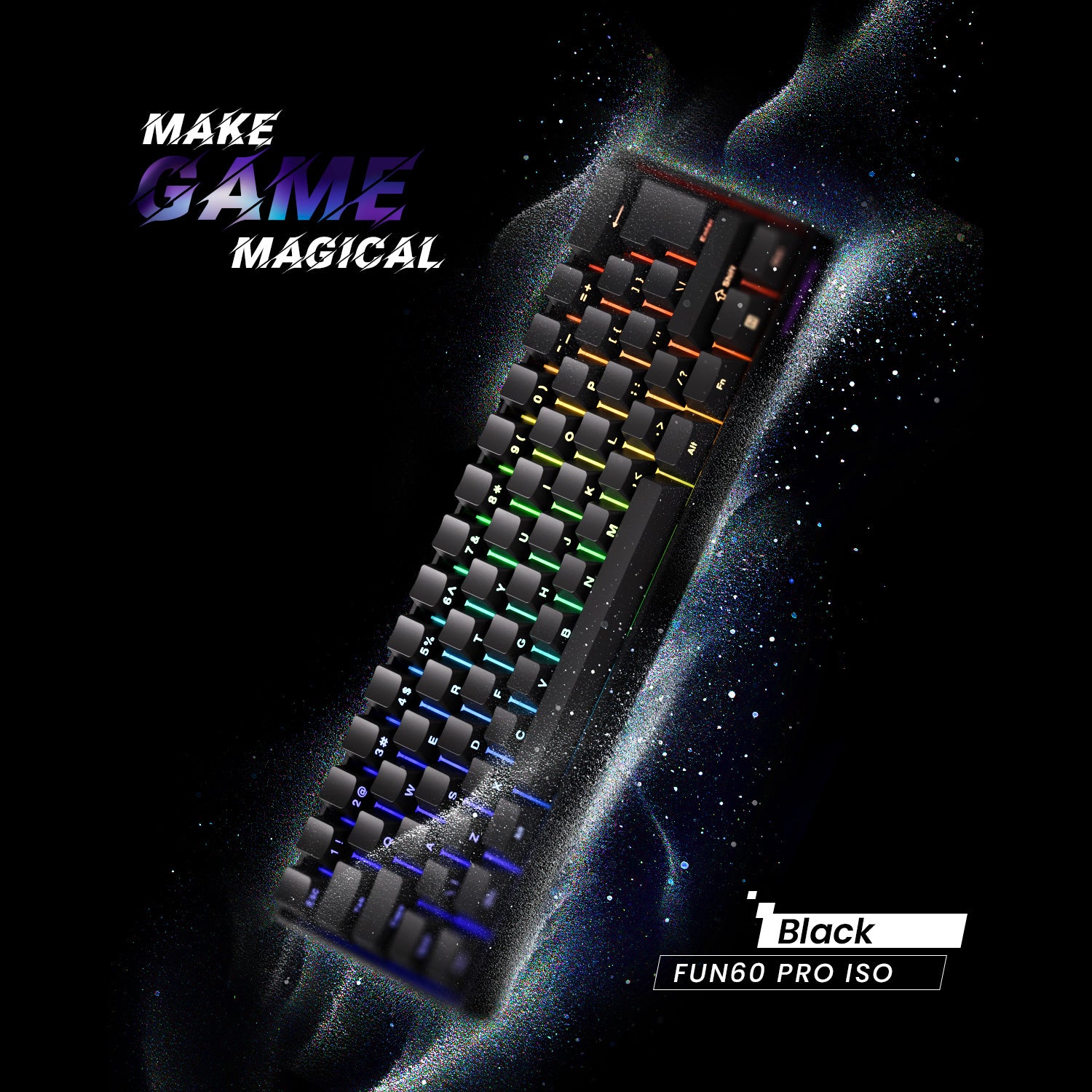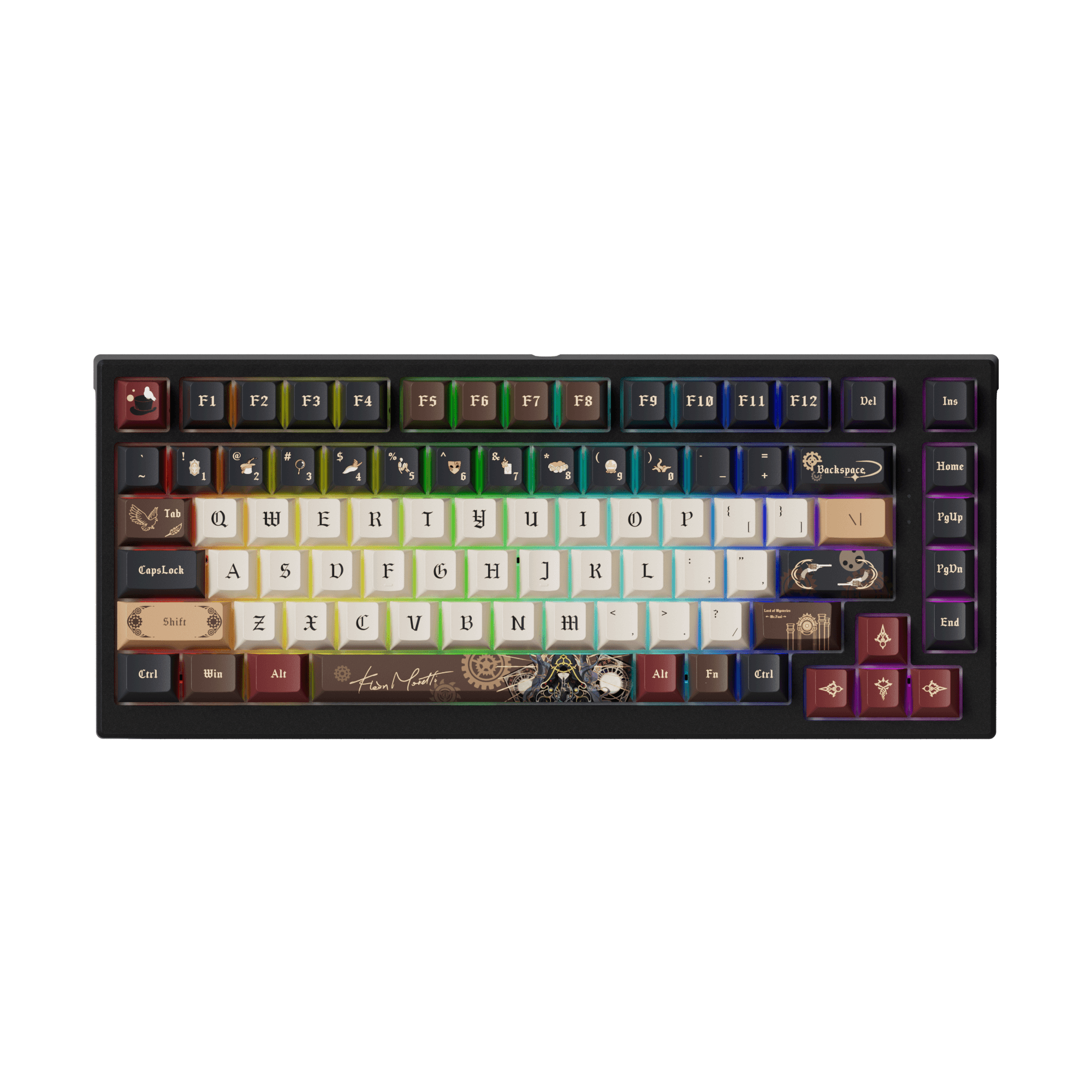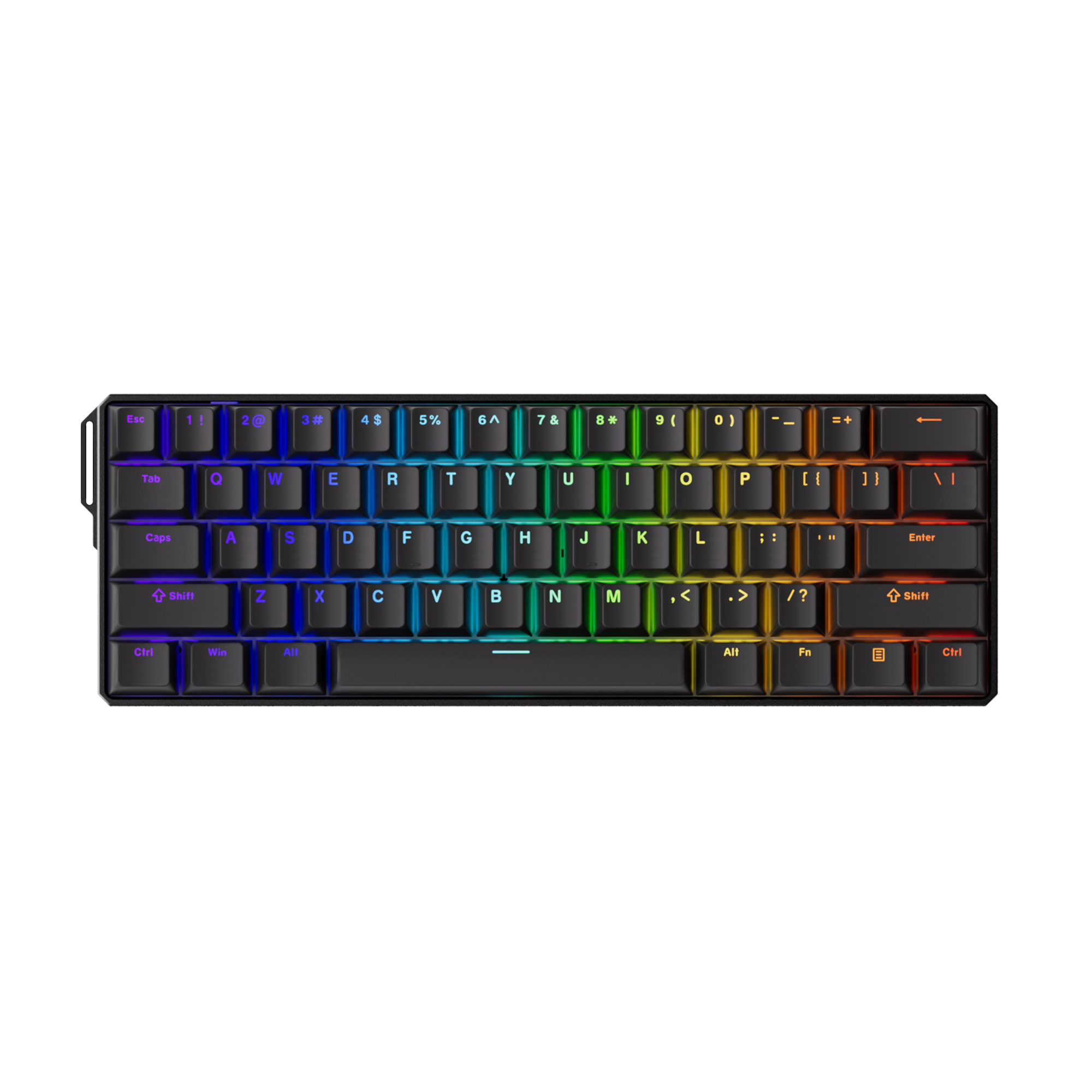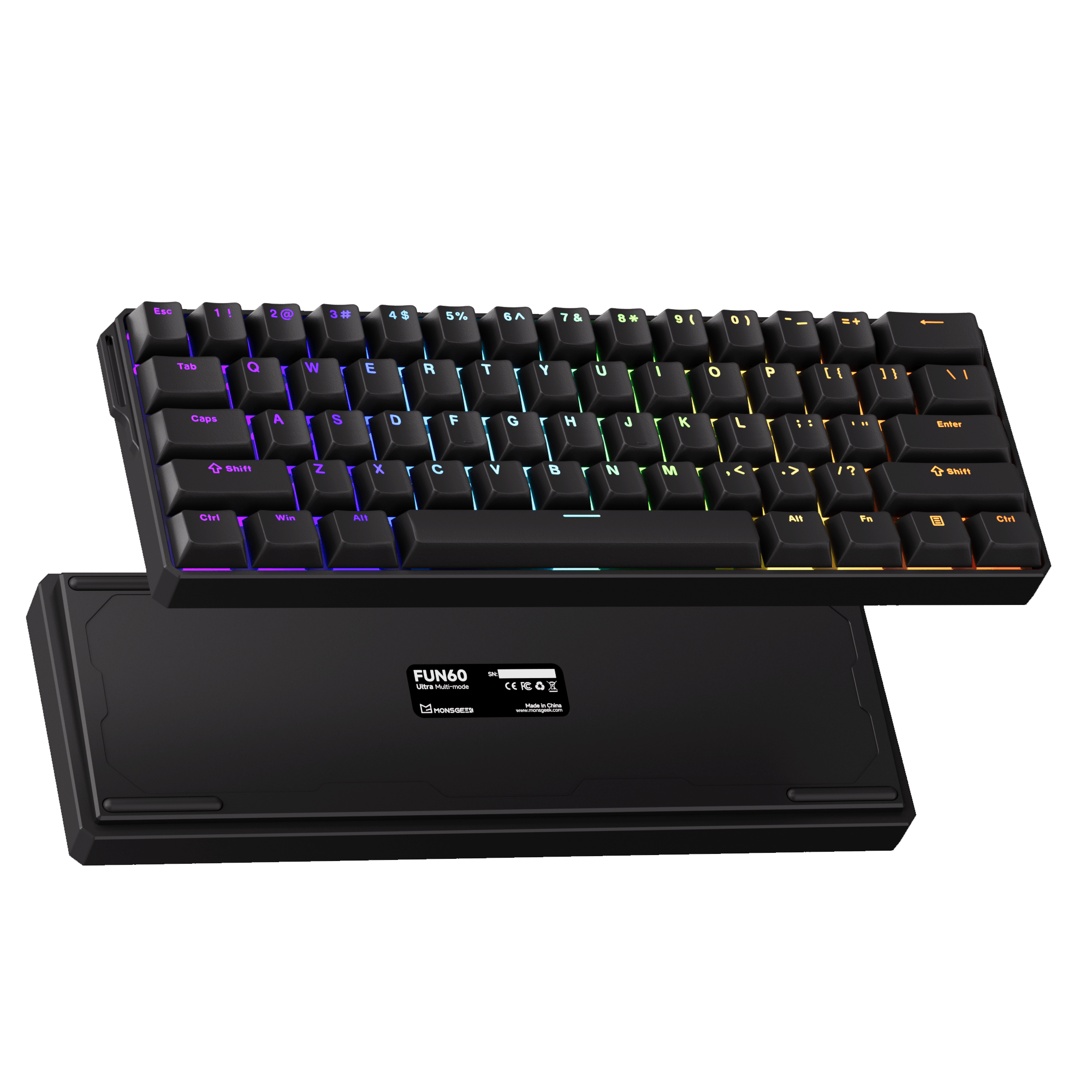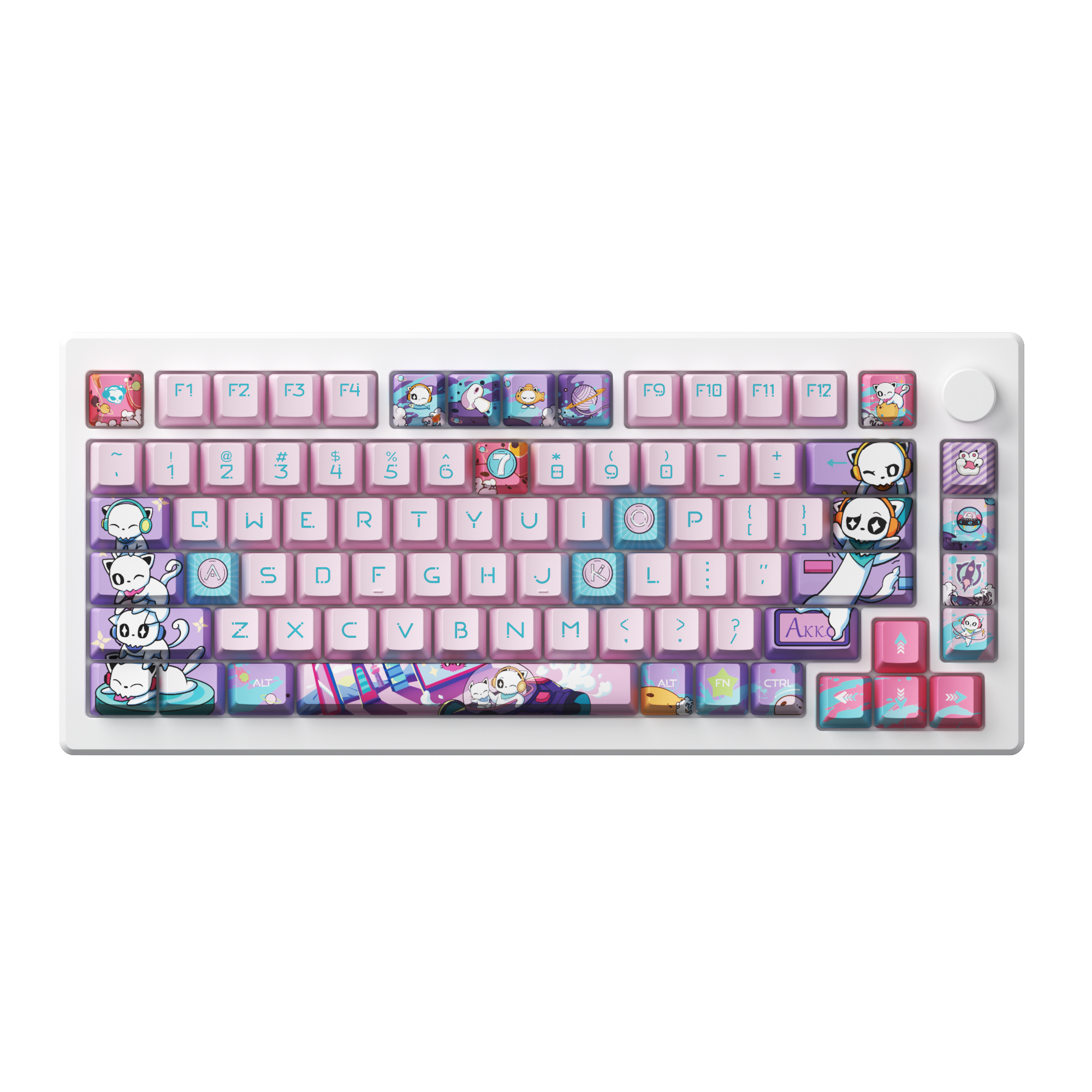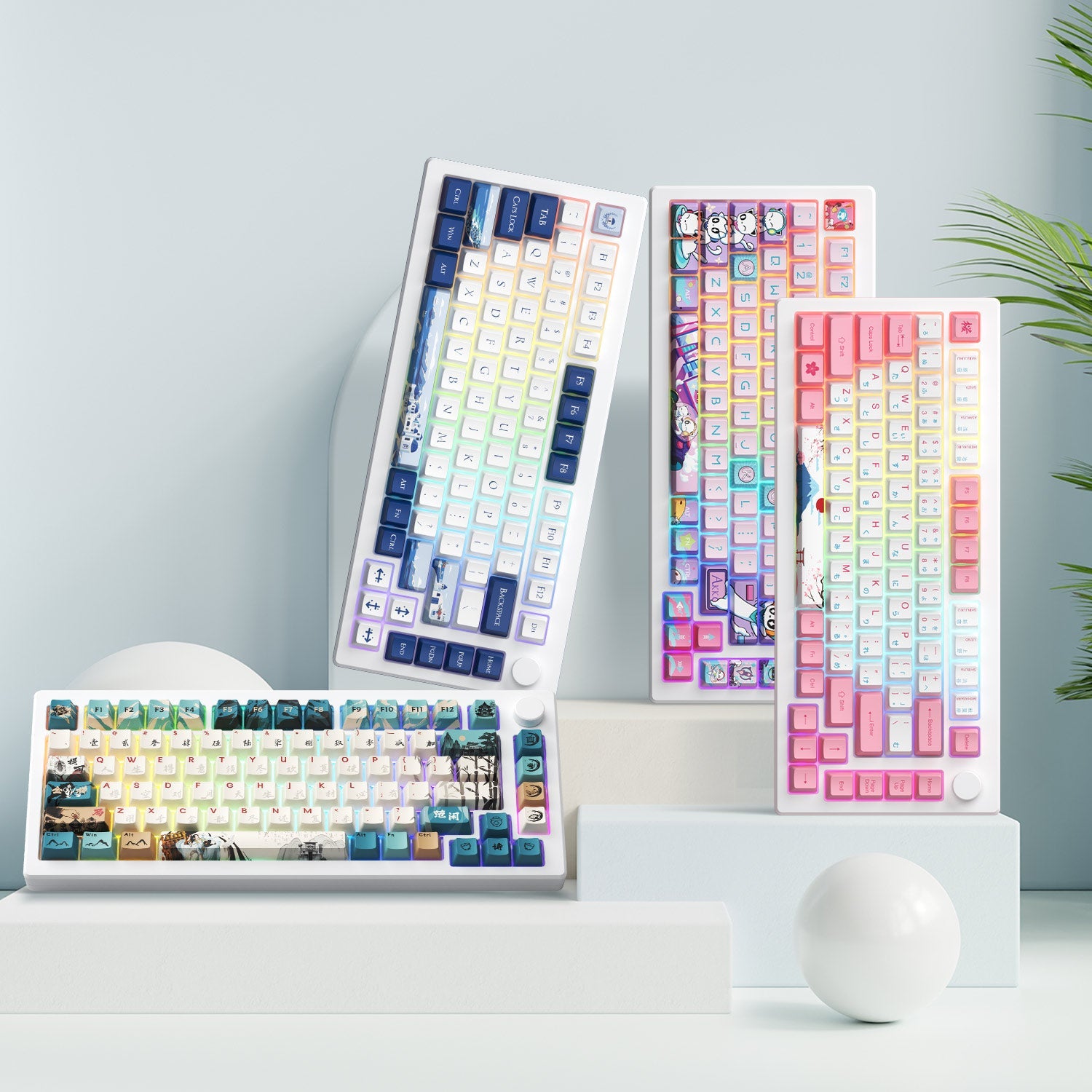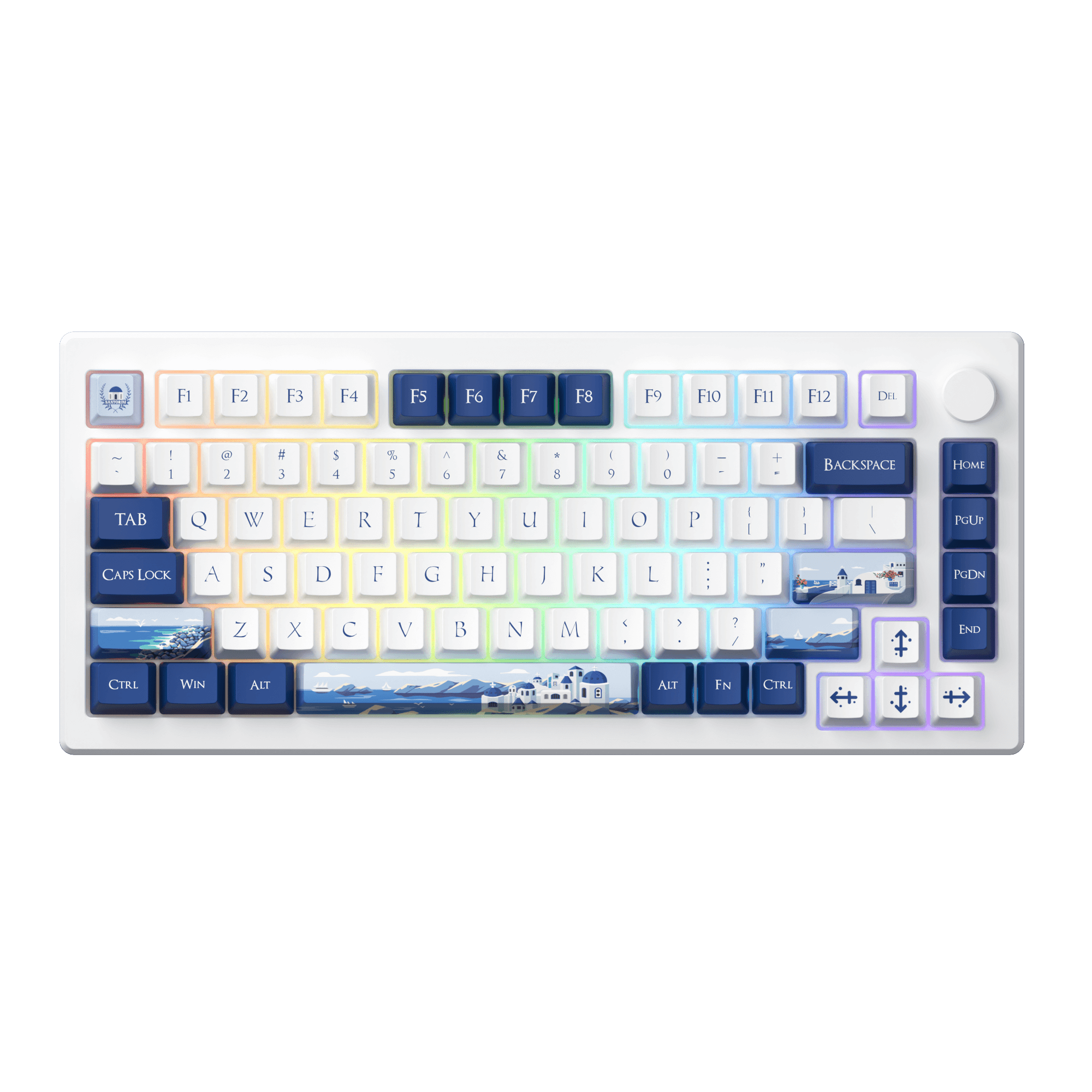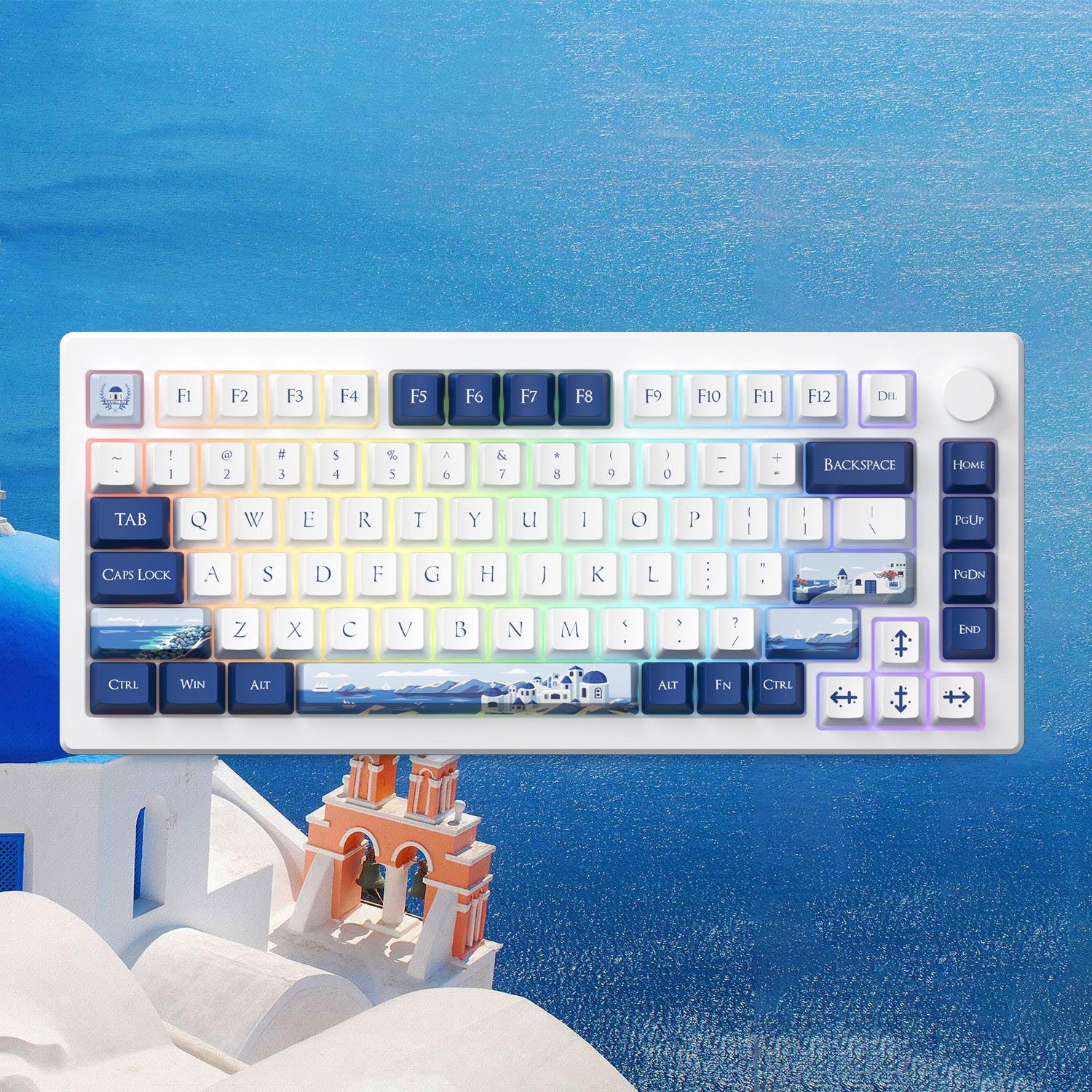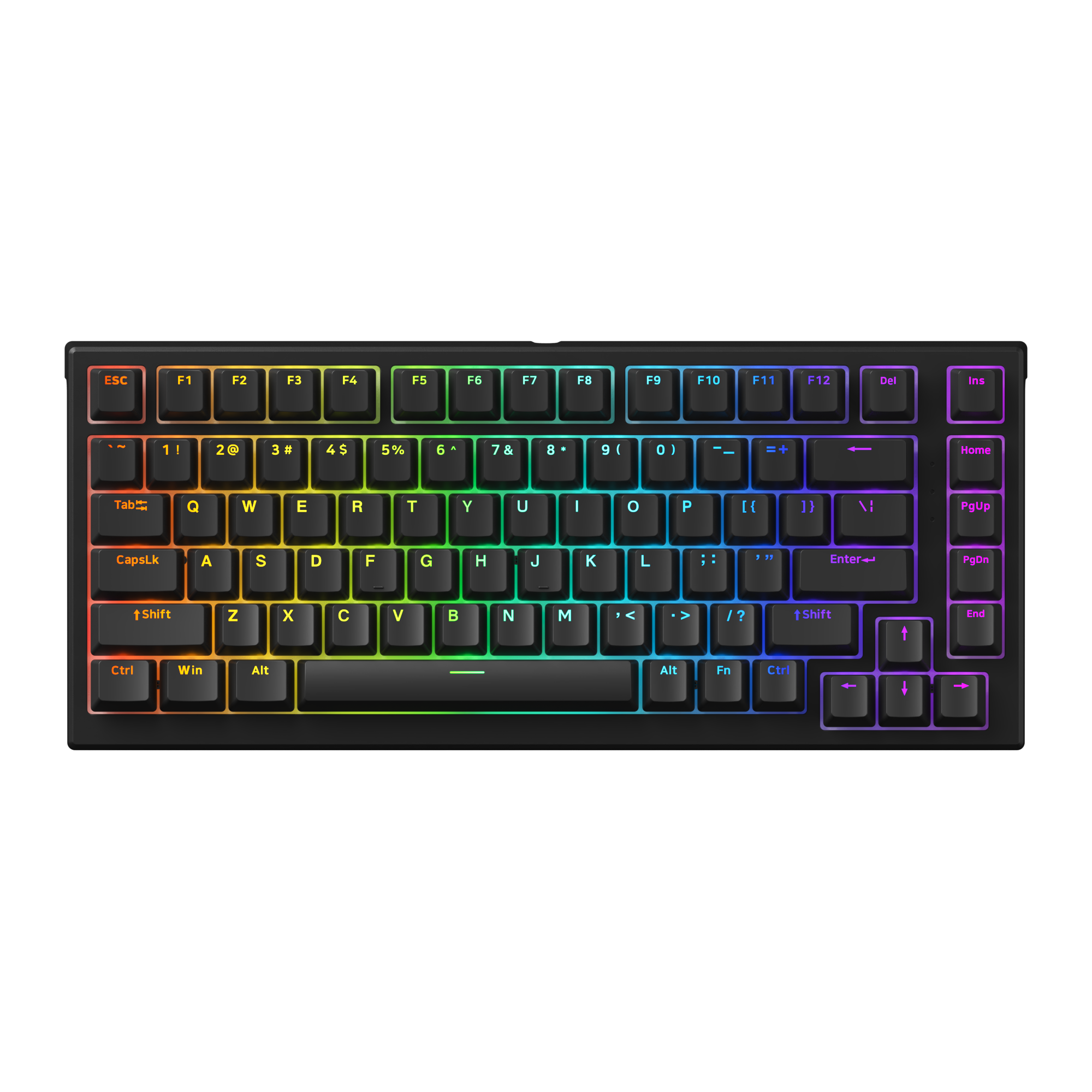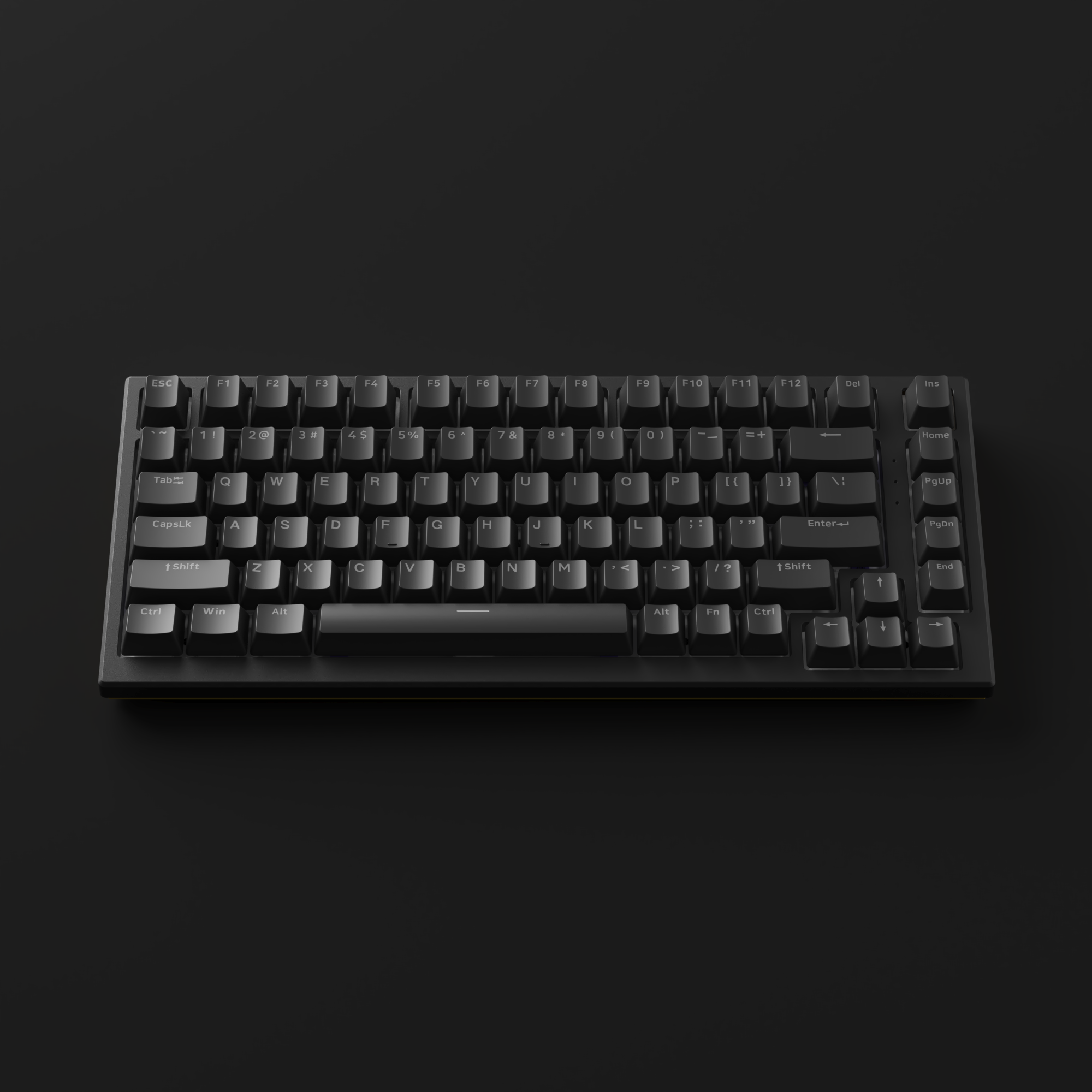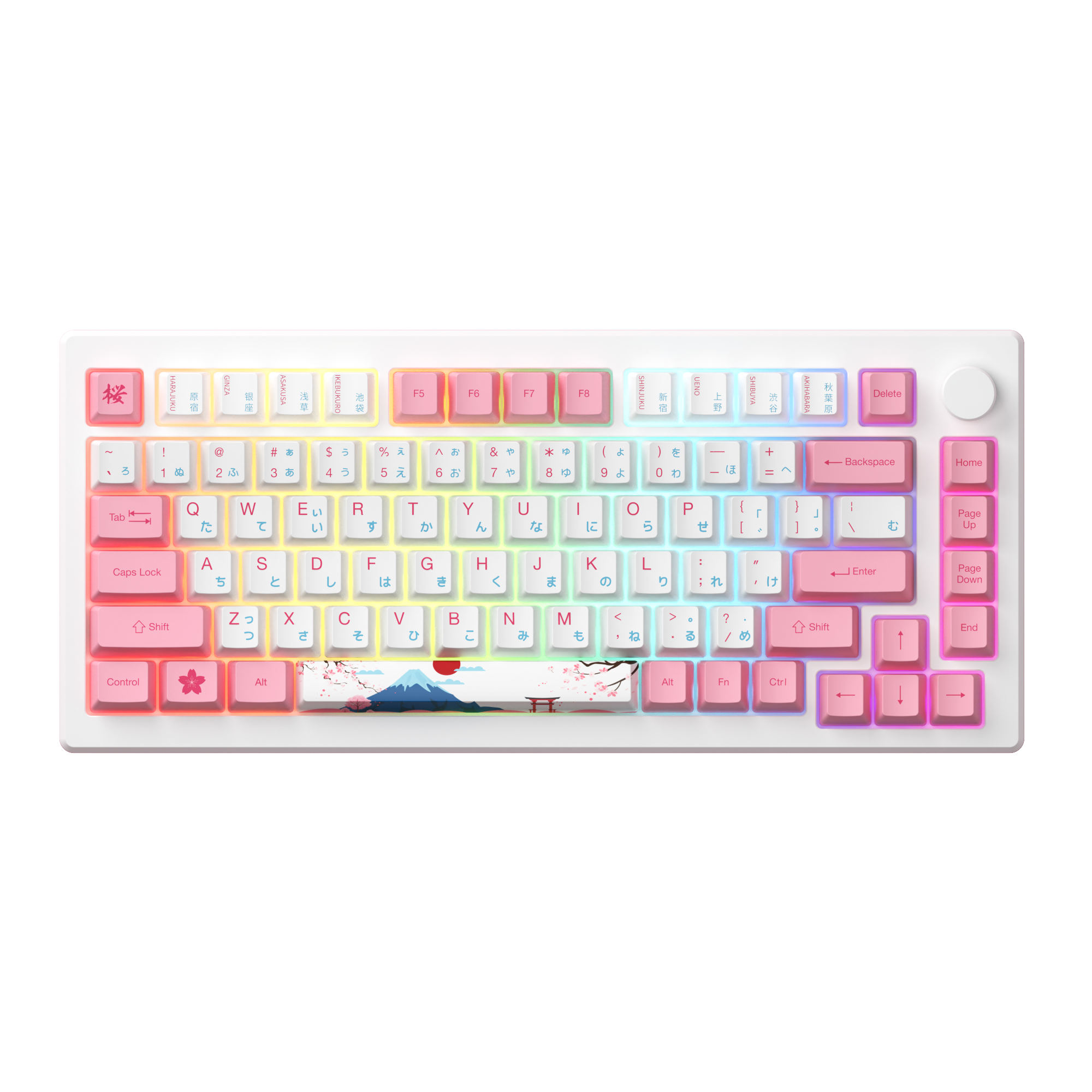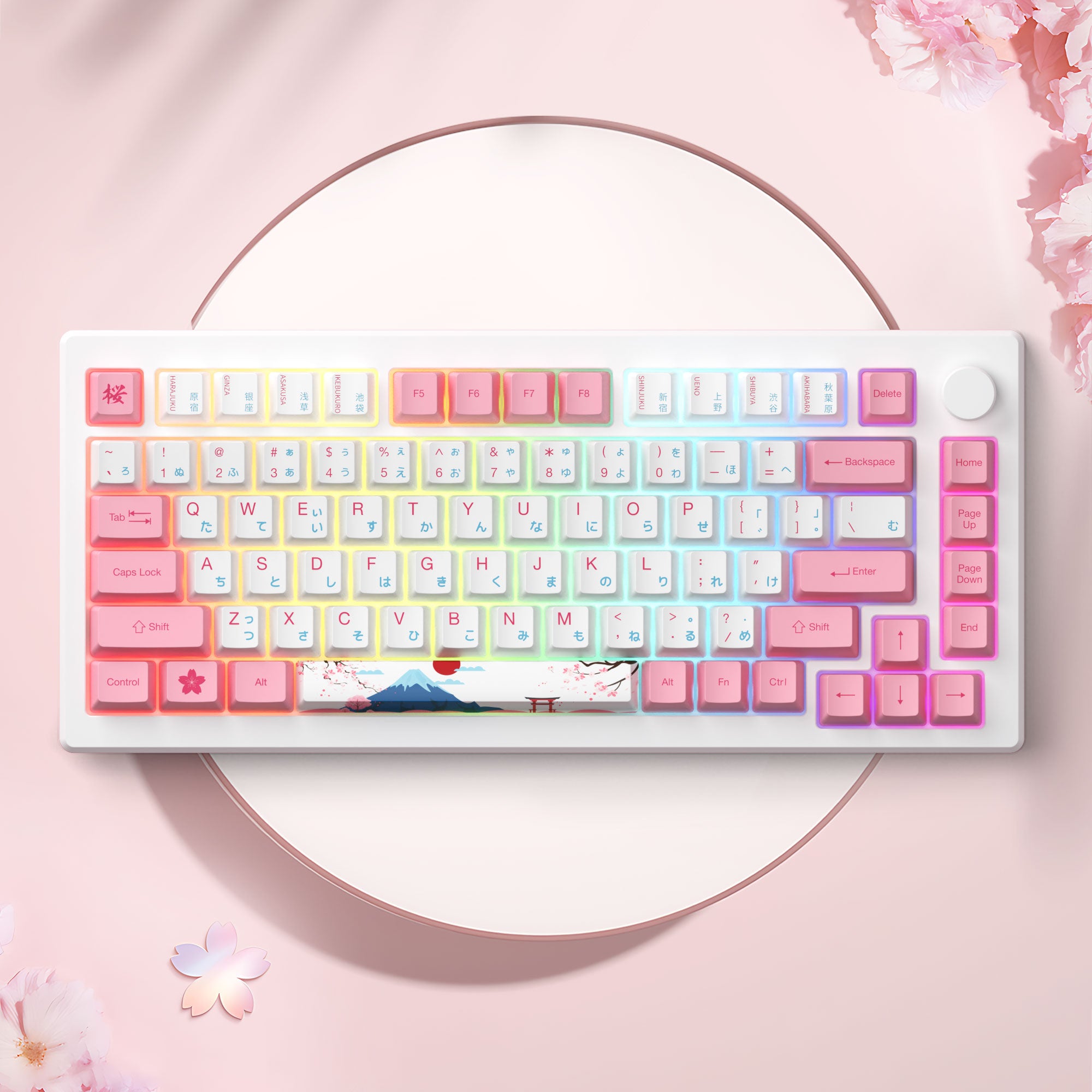Akko Magnetic Switches Introduction
Disclaimer for this Article
- This piece serves as a basic introduction to the magnetic switches keyboard, offering insights into its hardware, firmware, and driver framework as well as its features.
- All the features listed below have been successfully implemented and are already in full-scale production.
- Please note that the features described below might not reflect the most recent software updates. Our team is dedicated to providing timely updates to ensure accuracy.
Structure
Mount Type: Gasket / Tray Mount (Based on our experiement, impact of gasket mount on response time is minimal. Plate material matters)
Plate: Aluminum alloy plate to minimize travel (If you install mechanical switches and would want to enjoy a favorable gasket typing experience, a PC plate is recommended)
PCB: Thickness of 1.2mm, without flex-cut.
Stabilizers: Supports both PCB-mounted stablizer and plate-mounted stabilizer (Multi-layout PCB may for magnetic switches may not support PCB mounted stabilizers).
Accessories and Foams: Users can add desirable foams, including switch-pad, without affecting magnetic switches detection.
Switches and Compatibility
The existing line-up of Akko Magnetic Switches keyboards support downward-facing S-pole magnetic switches (different polarities can be manually flipped).
HE Switches from Gateron have additional legs for stability with reversed polarity, which doesn’t work on our PCB at the moment (as of Feb, 2024). Please note the structure of magnet also matters. Hence, vertical magnet isn’t compatible with PCB that only supports horizontal magnet.
Most Akko hall effect keyboards also supports 3-Pin mechanical switches (after replacement, calibration of maximum travel is required on the “More” page in the driver).
Currently we offer cream yellow magnetic switches and Kailh sakura pink magnetic switches. The magnetic flux is basically the same for both. In comparison to the 1st batch in Auguest, the cream-yellow switches has added lubrication and changed the spring. We will continue to enrich our switch line-up.
Another critical thing to note is magnetic switches interacts with the hall sensors installed on the PCB. Therefore, the type and position of hall sensor in the PCB matters in terms of the compatibility.
We hope the industry releases a uniform standard that would help all HE switches to be compatible with each other in the future.
Lubing Magnetic Switches
All switches come with a thin layer of lubrication on stem. Users may choose to lube spring and stems based on personal preference. However, magnetic switches don’t necessarily have the complete mechanical structures like a mechanical switches so lubing switches may only improve typing experiences in a limited level.
Web-Based App
We are implementing a web-based driver for our keyboards (including magnetic switches line-up): https://www.akkogear.com/onlinedrives
This is a fresh launch so if you encounter any issue, feel free to report to us via support@akkogear.com
Mount Type: Gasket / Tray Mount (Based on our experiement, impact of gasket mount on response time is minimal. Plate material matters)
Plate: Aluminum alloy plate to minimize travel (If you install mechanical switches and would want to enjoy a favorable gasket typing experience, a PC plate is recommended)
PCB: Thickness of 1.2mm, without flex-cut.
Stabilizers: Supports both PCB-mounted stablizer and plate-mounted stabilizer (Multi-layout PCB may for magnetic switches may not support PCB mounted stabilizers).
Accessories and Foams: Users can add desirable foams, including switch-pad, without affecting magnetic switches detection.
The existing line-up of Akko Magnetic Switches keyboards support downward-facing S-pole magnetic switches (different polarities can be manually flipped).
HE Switches from Gateron have additional legs for stability with reversed polarity, which doesn’t work on our PCB at the moment (as of Feb, 2024). Please note the structure of magnet also matters. Hence, vertical magnet isn’t compatible with PCB that only supports horizontal magnet.
Most Akko hall effect keyboards also supports 3-Pin mechanical switches (after replacement, calibration of maximum travel is required on the “More” page in the driver).
Currently we offer cream yellow magnetic switches and Kailh sakura pink magnetic switches. The magnetic flux is basically the same for both. In comparison to the 1st batch in Auguest, the cream-yellow switches has added lubrication and changed the spring. We will continue to enrich our switch line-up.
Another critical thing to note is magnetic switches interacts with the hall sensors installed on the PCB. Therefore, the type and position of hall sensor in the PCB matters in terms of the compatibility.
We hope the industry releases a uniform standard that would help all HE switches to be compatible with each other in the future.
All switches come with a thin layer of lubrication on stem. Users may choose to lube spring and stems based on personal preference. However, magnetic switches don’t necessarily have the complete mechanical structures like a mechanical switches so lubing switches may only improve typing experiences in a limited level.
We are implementing a web-based driver for our keyboards (including magnetic switches line-up): https://www.akkogear.com/onlinedrives
This is a fresh launch so if you encounter any issue, feel free to report to us via support@akkogear.com
Key Features for Magnetic Switches
Magnetic switches keyboard can customize actuation distances with additional helpful gaming features.
Customizable Actuation Point
0.1mm~4.0mm with an increment of 0.1mm.
Please update your firmware and use our latest driver in the Download Center page to enjoy a wider actuation range.
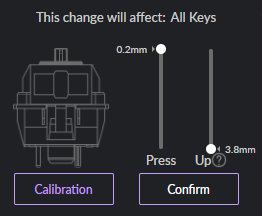
Customizable Actuation Point
0.1mm~4.0mm with an increment of 0.1mm.
Please update your firmware and use our latest driver in the Download Center page to enjoy a wider actuation range.

Rapid Trigger(RT)
When you set up rapid trigger, you can set the subsequent key press and release from 0.2mm~2.5mm with an increment of 0.1mm.
This is helpful in Valorant to improve counter strafing because you have to instantly stop and shoot. Magnetic switches allow you to release at just 0.2mm to stop.
The image next is the most sensitive and popular setting for rapid trigger.
[0.1mm RT is being tested now. If the test proves okay, firmware and driver update is needed]
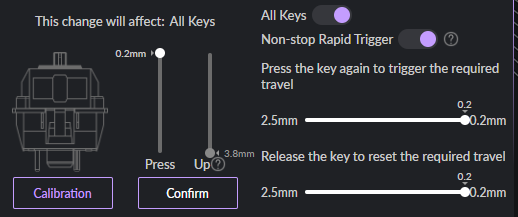
Rapid Trigger(RT)
When you set up rapid trigger, you can set the subsequent key press and release from 0.2mm~2.5mm with an increment of 0.1mm.
This is helpful in Valorant to improve counter strafing because you have to instantly stop and shoot. Magnetic switches allow you to release at just 0.2mm to stop.
The image next is the most sensitive and popular setting for rapid trigger.
[0.1mm RT is being tested now. If the test proves okay, firmware and driver update is needed]

Dynamic Keystrokes(DKS)
Bind one key to 4 different actions from press to release. This is different from macro because for magnetic switches, it analogly generates 4 different key values and you are actually physically pressing the key while those values are generated.
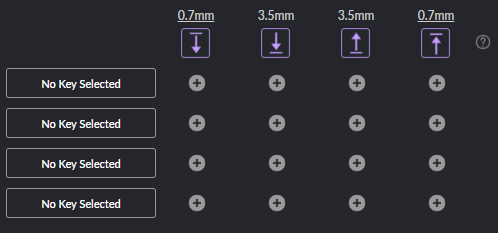
Dynamic Keystrokes(DKS)
Bind one key to 4 different actions from press to release. This is different from macro because for magnetic switches, it analogly generates 4 different key values and you are actually physically pressing the key while those values are generated.

Release Trigger: In addition to the regular key definition, releasing the key will also trigger an extra key definition.
Bottom-Out Trigger: When the key is pressed all the way down, the original key definition is released, and a new key definition is triggered.
Speed Differentiation: You can set light press and heavy press to trigger different values.
Free Binding: In addition to regular keys, you can also bind combination keys and macros.
Why Calibration/Validations Are Required
- With the calibration function, users can change magnetic switches to have different gaming experiences (magnetic switches with the same polarity or three-pin mechanical switches).
- When the keyboard undergoes high-temperature conditions or remains unused for an extended period, calibration is necessary for optimal performance due to changes in the magnetic field.
- Calibration is also necessary to reduce deadzones because ever user has different typing behaviors. Some brands, after collecting a lot of user data, will set generalized dead zones and dynamically calibrate the keys. We wish to achieve that after we have enough user feedback. So please feel free to communicate with us.
Dynamic Calibration
Dynamic Calibration is the trend and is implemented officially on firmware V107 for our wireless HE keyboard.
The implementation of dynamic calibration will remove the hassle of manual calibration in most cases.
However, it is important to note manual calibration is still REQUIRED in the following situations:
- Switch between mechanical switches and magnetic switches.
- High temperature over 50 degrees Centigrade.
The dynamic and automatic calibration may fail in extreme conditions if a user presses a key from top to bottom slowly in 5 seconds. The keyboard will be unable to correctly locate the travel distance in this scenario.
Simulator
- The built-in simulator in the driver provides a visual representation of magnetic switches dynamics, synchronously displaying the real-time position of pressed keys and showcasing the instantaneous status of rapid triggers and releases.
- This simulator may not achieve 100% accuracy in position due to delays, and will be constantly improved for accuracy.
Analog Input
This function is being actively worked on by the development team. A schedule of implementation is expected to be posted in March.
- With the calibration function, users can change magnetic switches to have different gaming experiences (magnetic switches with the same polarity or three-pin mechanical switches).
- When the keyboard undergoes high-temperature conditions or remains unused for an extended period, calibration is necessary for optimal performance due to changes in the magnetic field.
- Calibration is also necessary to reduce deadzones because ever user has different typing behaviors. Some brands, after collecting a lot of user data, will set generalized dead zones and dynamically calibrate the keys. We wish to achieve that after we have enough user feedback. So please feel free to communicate with us.
Dynamic Calibration is the trend and is implemented officially on firmware V107 for our wireless HE keyboard.
The implementation of dynamic calibration will remove the hassle of manual calibration in most cases.
However, it is important to note manual calibration is still REQUIRED in the following situations:
- Switch between mechanical switches and magnetic switches.
- High temperature over 50 degrees Centigrade.
The dynamic and automatic calibration may fail in extreme conditions if a user presses a key from top to bottom slowly in 5 seconds. The keyboard will be unable to correctly locate the travel distance in this scenario.
- The built-in simulator in the driver provides a visual representation of magnetic switches dynamics, synchronously displaying the real-time position of pressed keys and showcasing the instantaneous status of rapid triggers and releases.
- This simulator may not achieve 100% accuracy in position due to delays, and will be constantly improved for accuracy.
This function is being actively worked on by the development team. A schedule of implementation is expected to be posted in March.
Considering that magnetic switches are primarily used for gaming applications, you can directly communicate any operations needed or desired in games by contacting support.eu@akkogear.com. Our development team will assess, evaluate, and propose solutions for implementation.
Contact Us
Still couldn't find what you're looking for?
If you do not find the answer to your question in our FAQ, you can send us a message by filling out the form below.
Akko HE Keyboards
Explore Top Picks!


